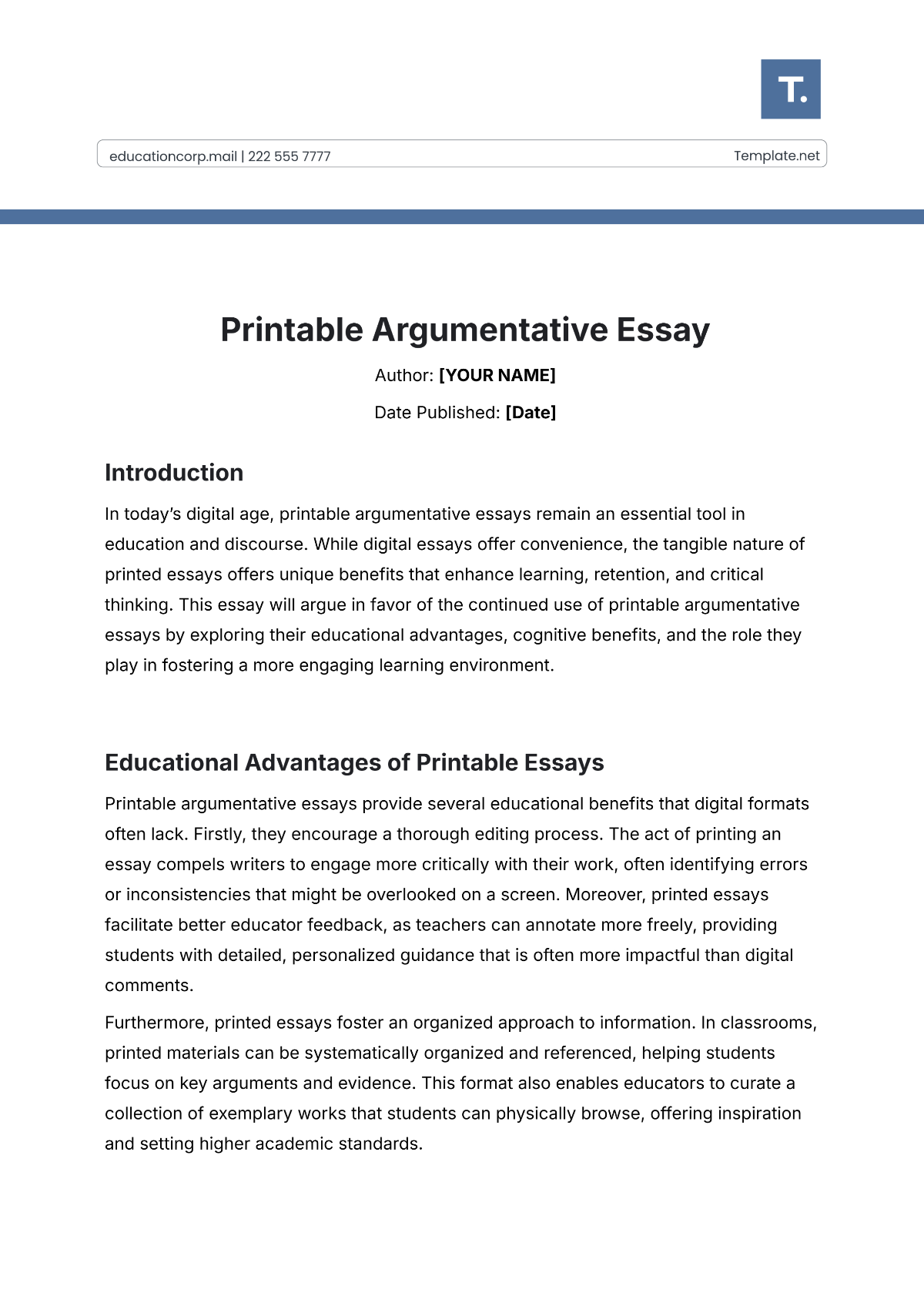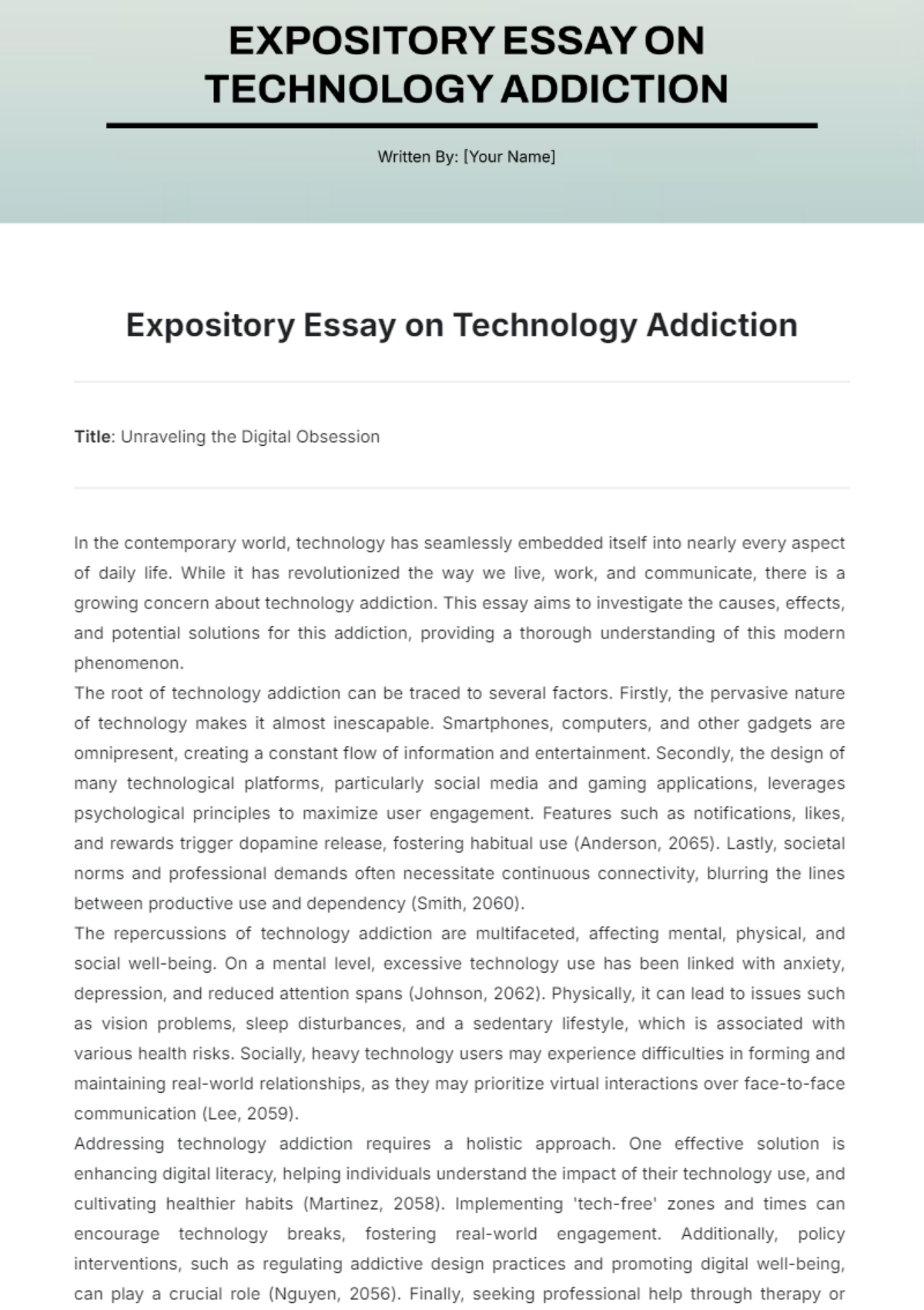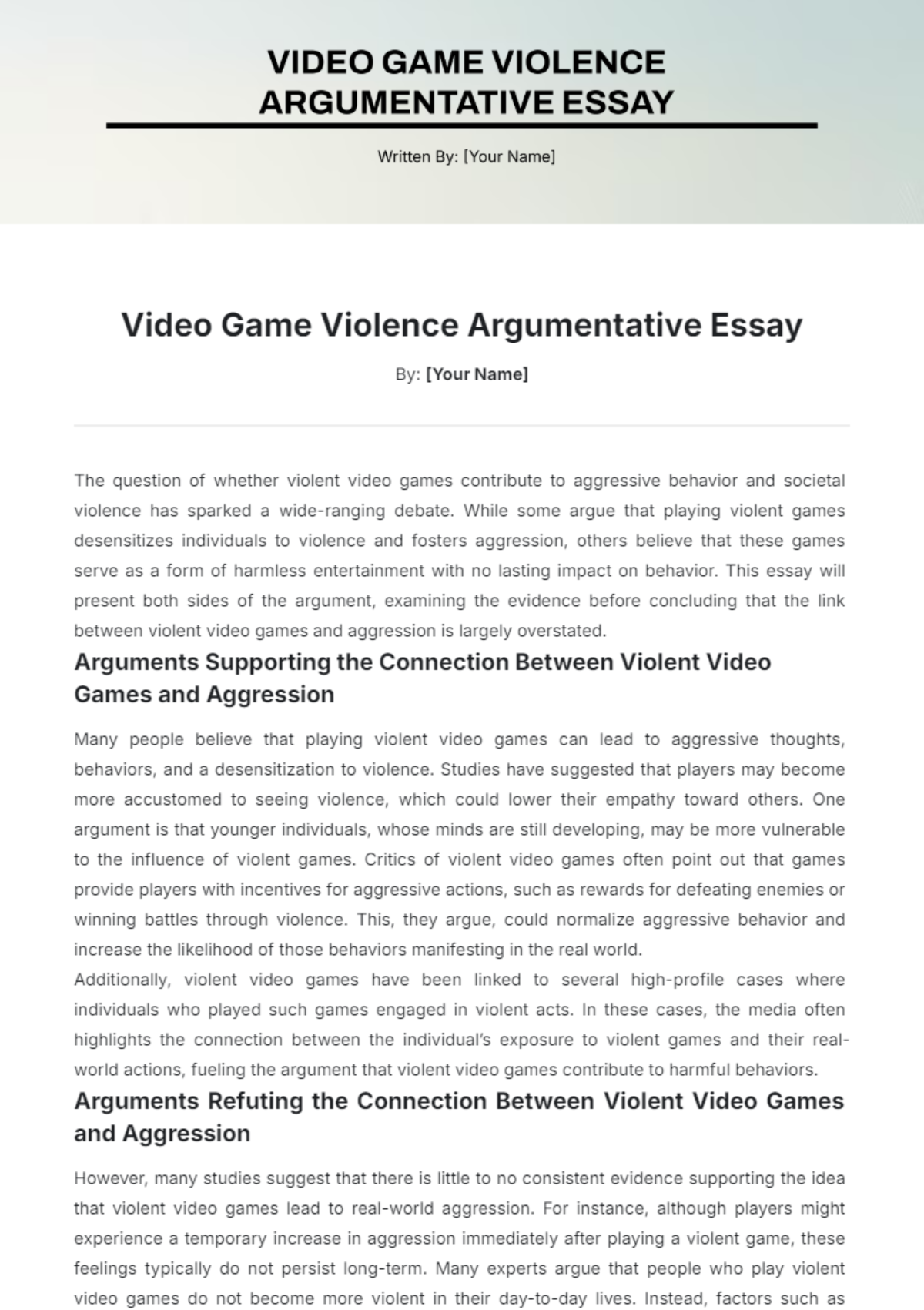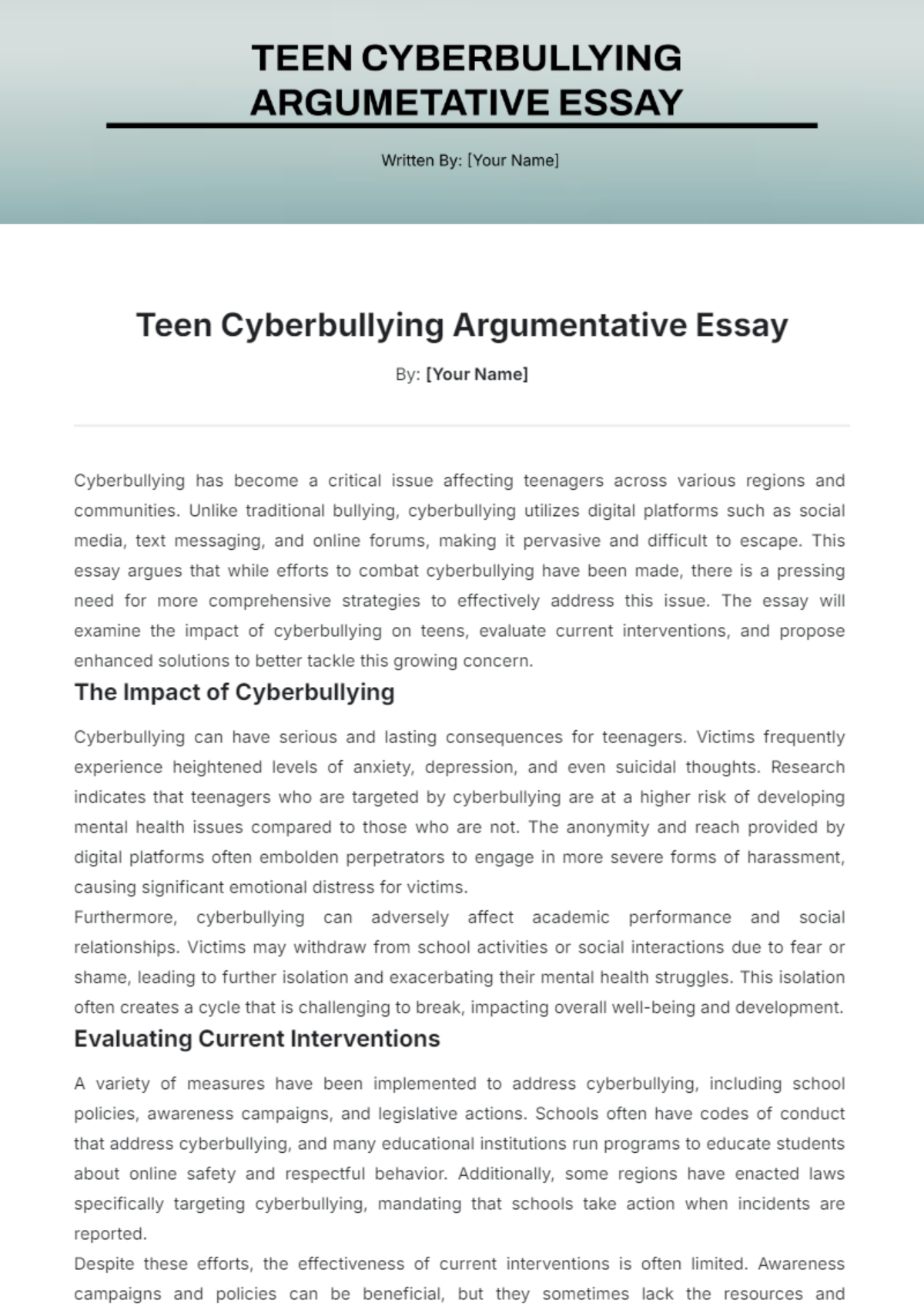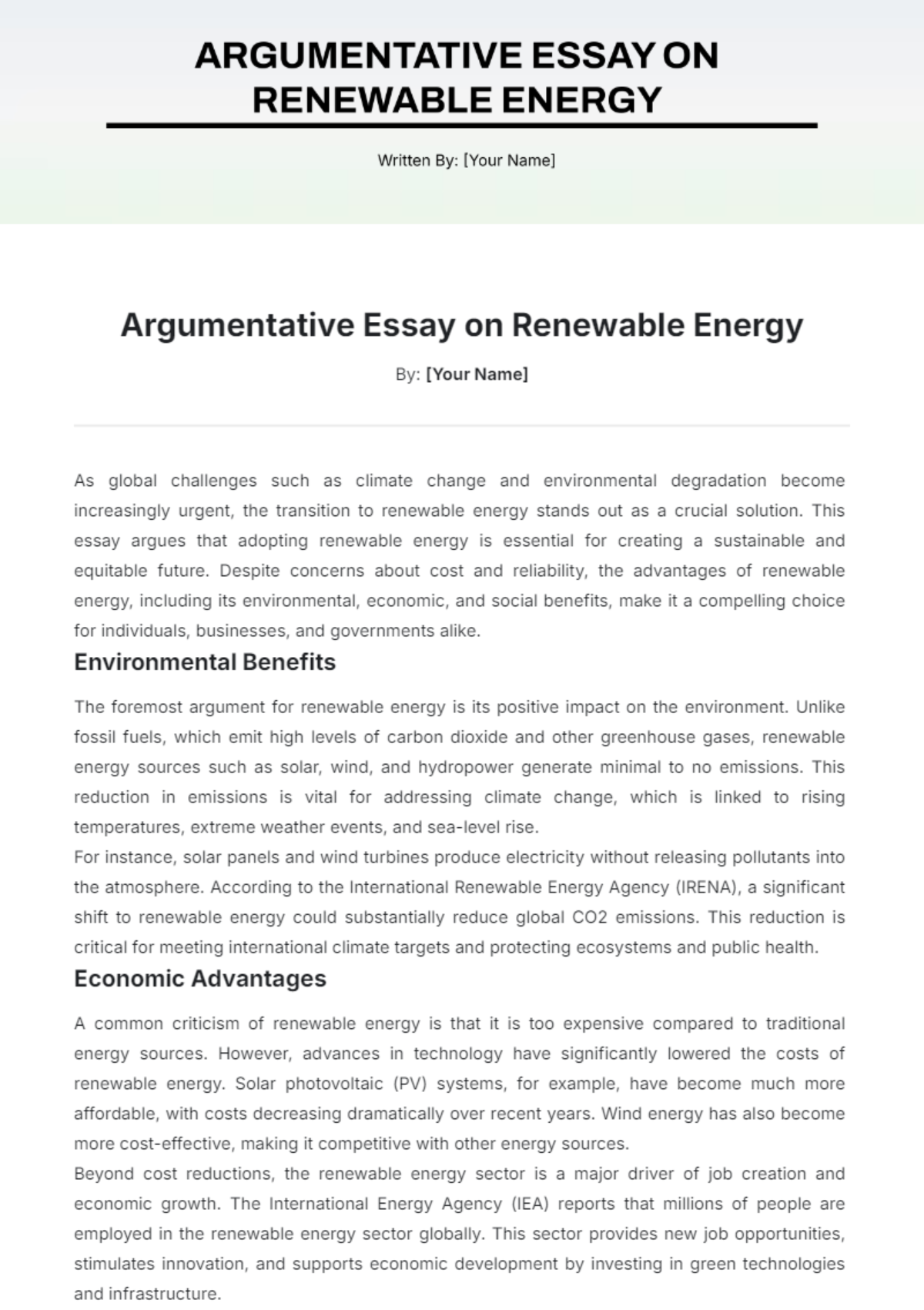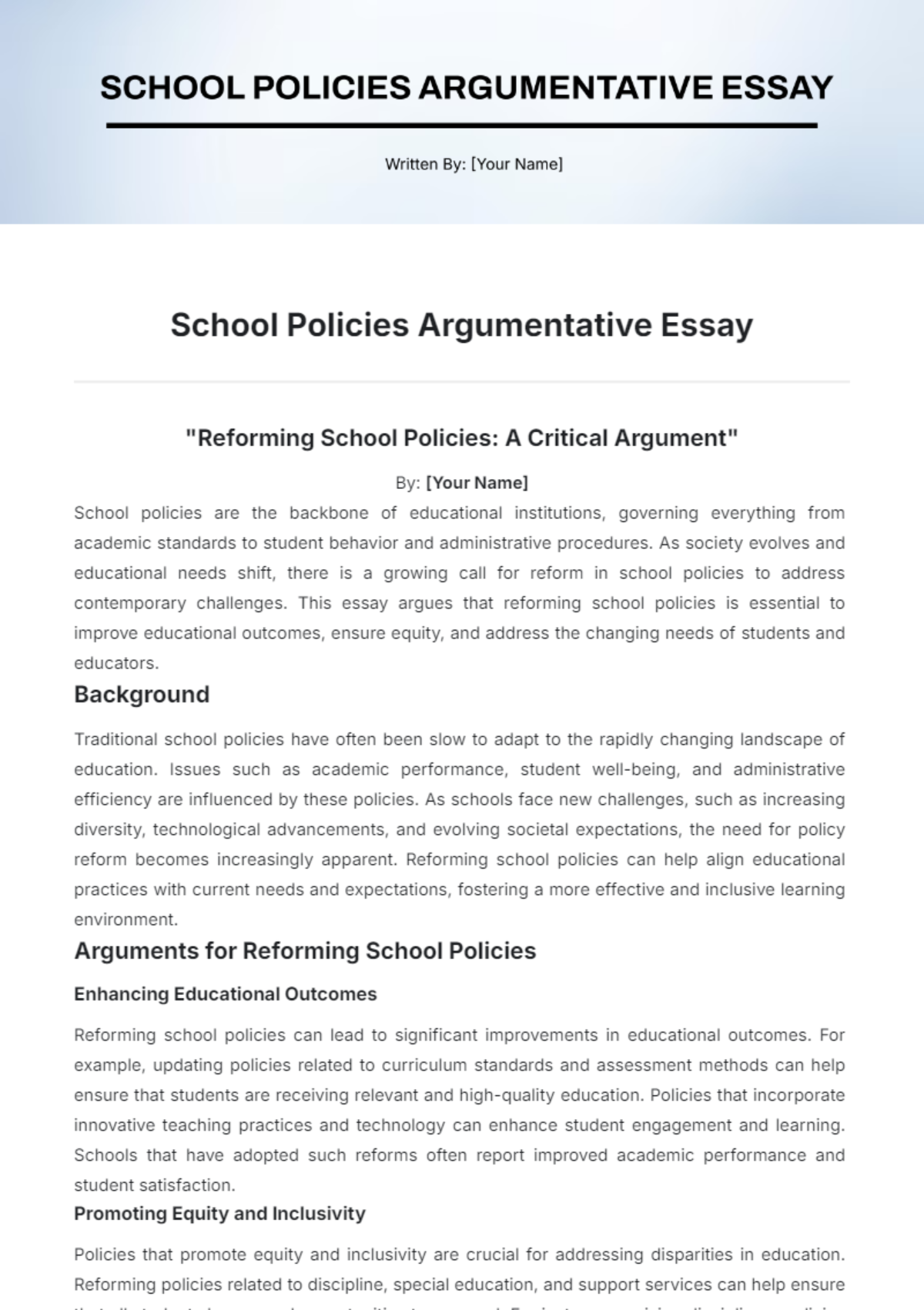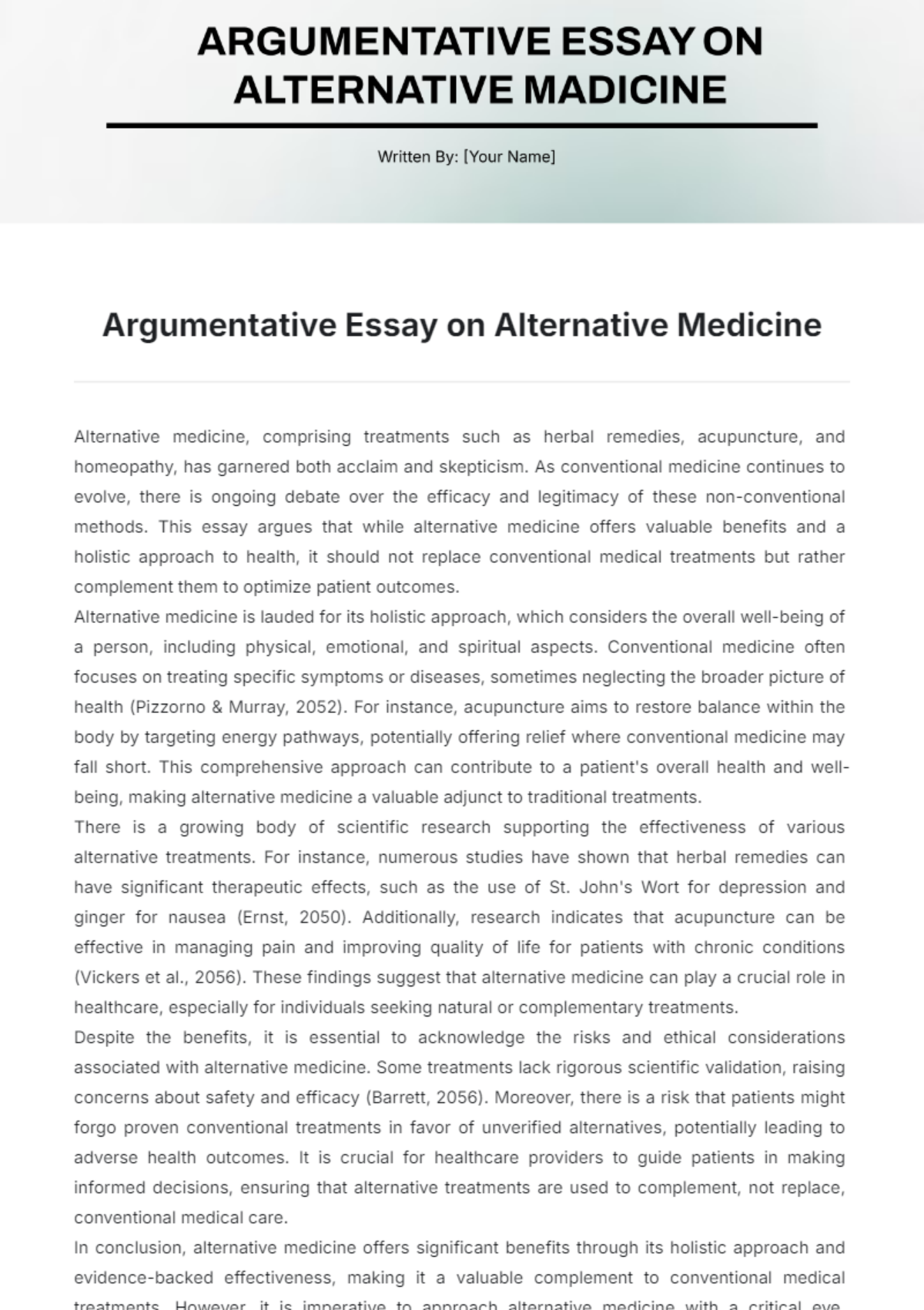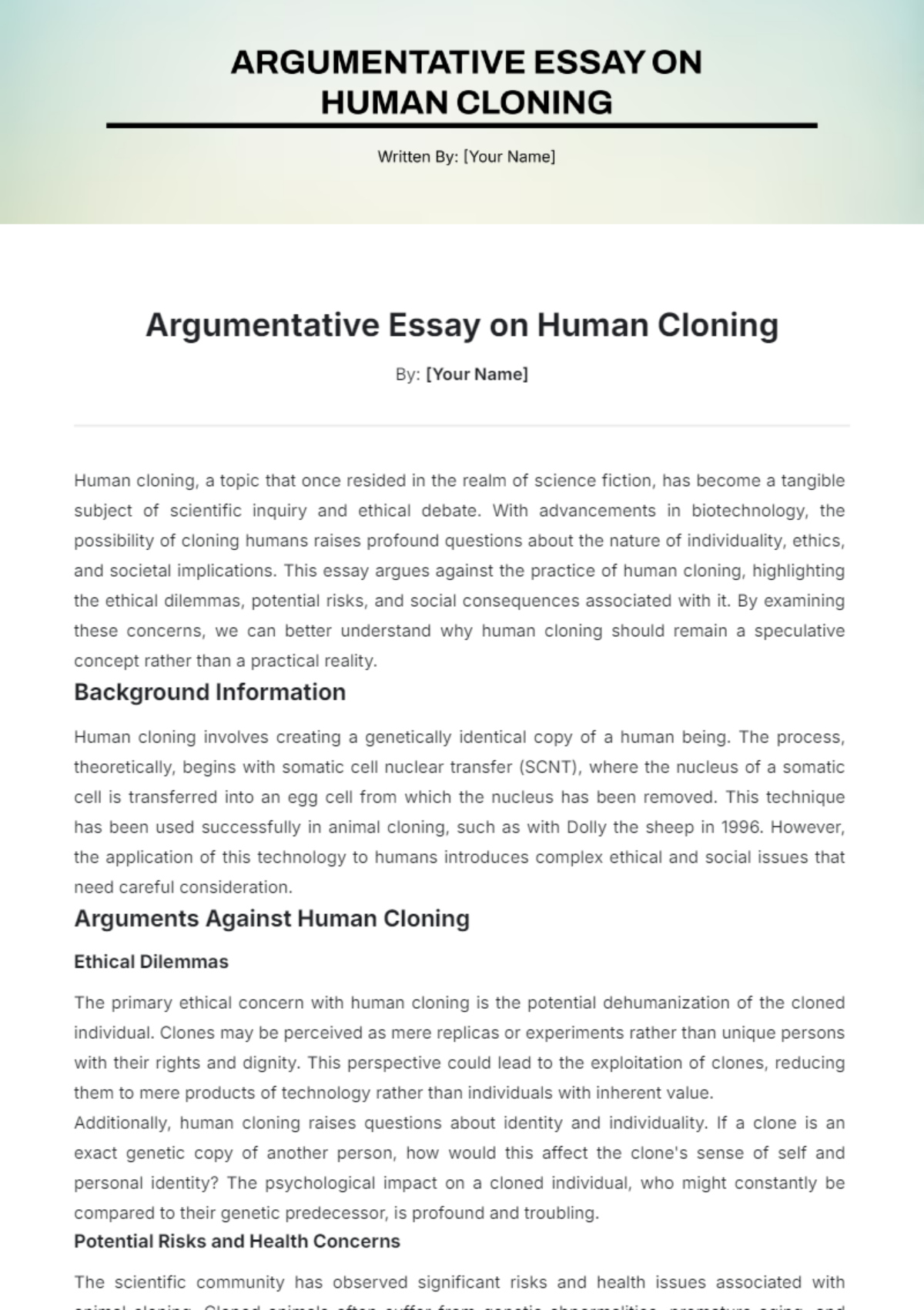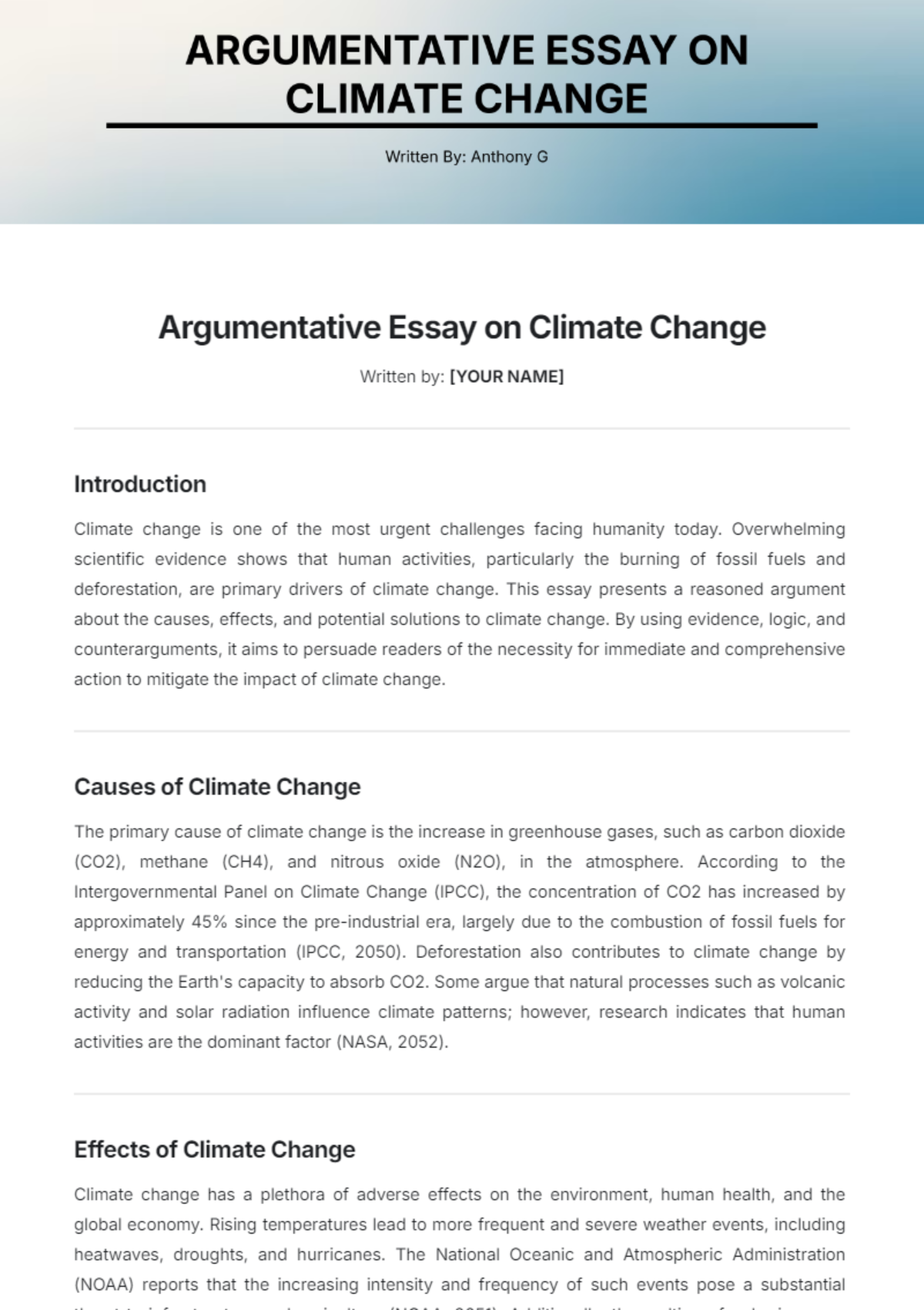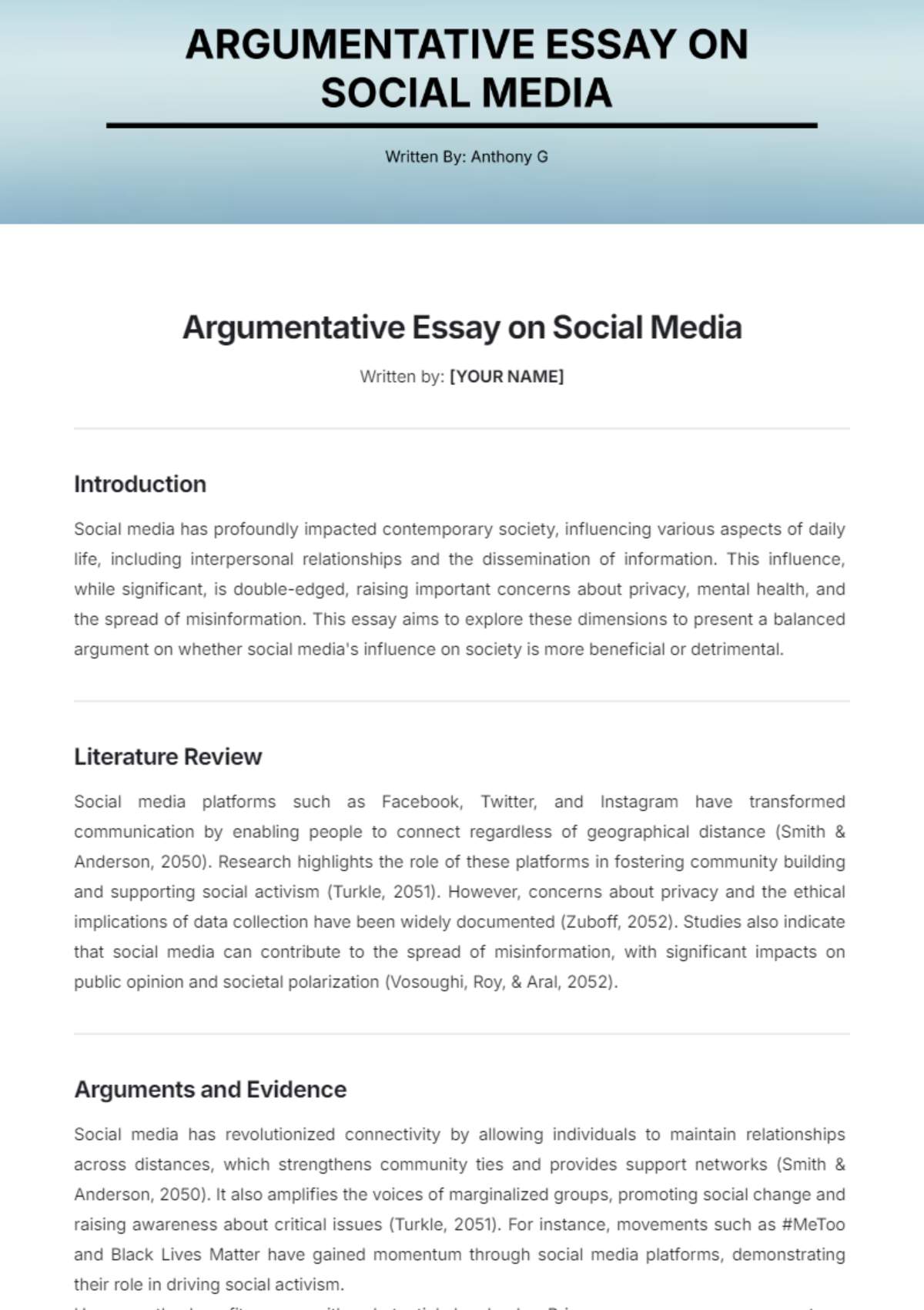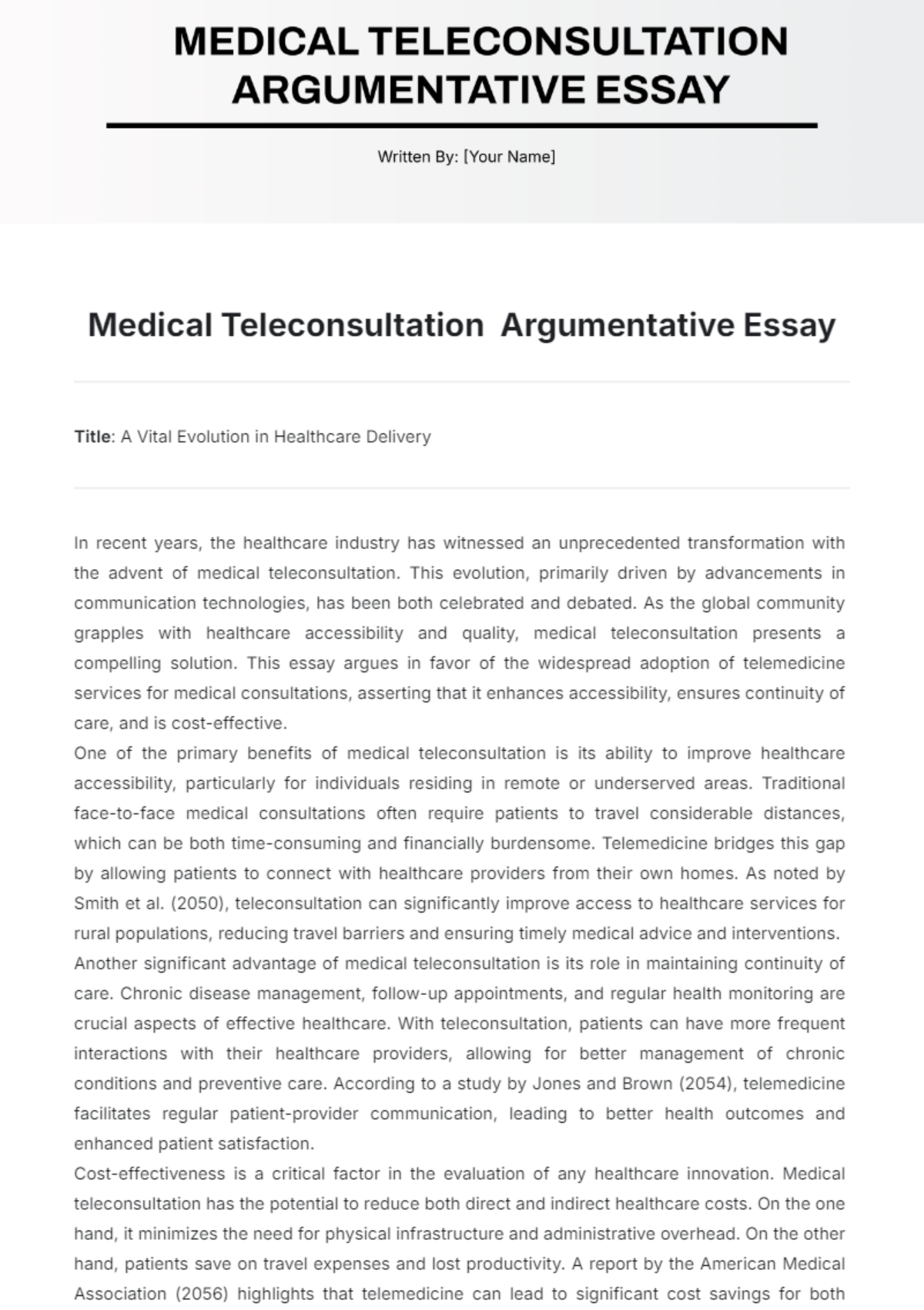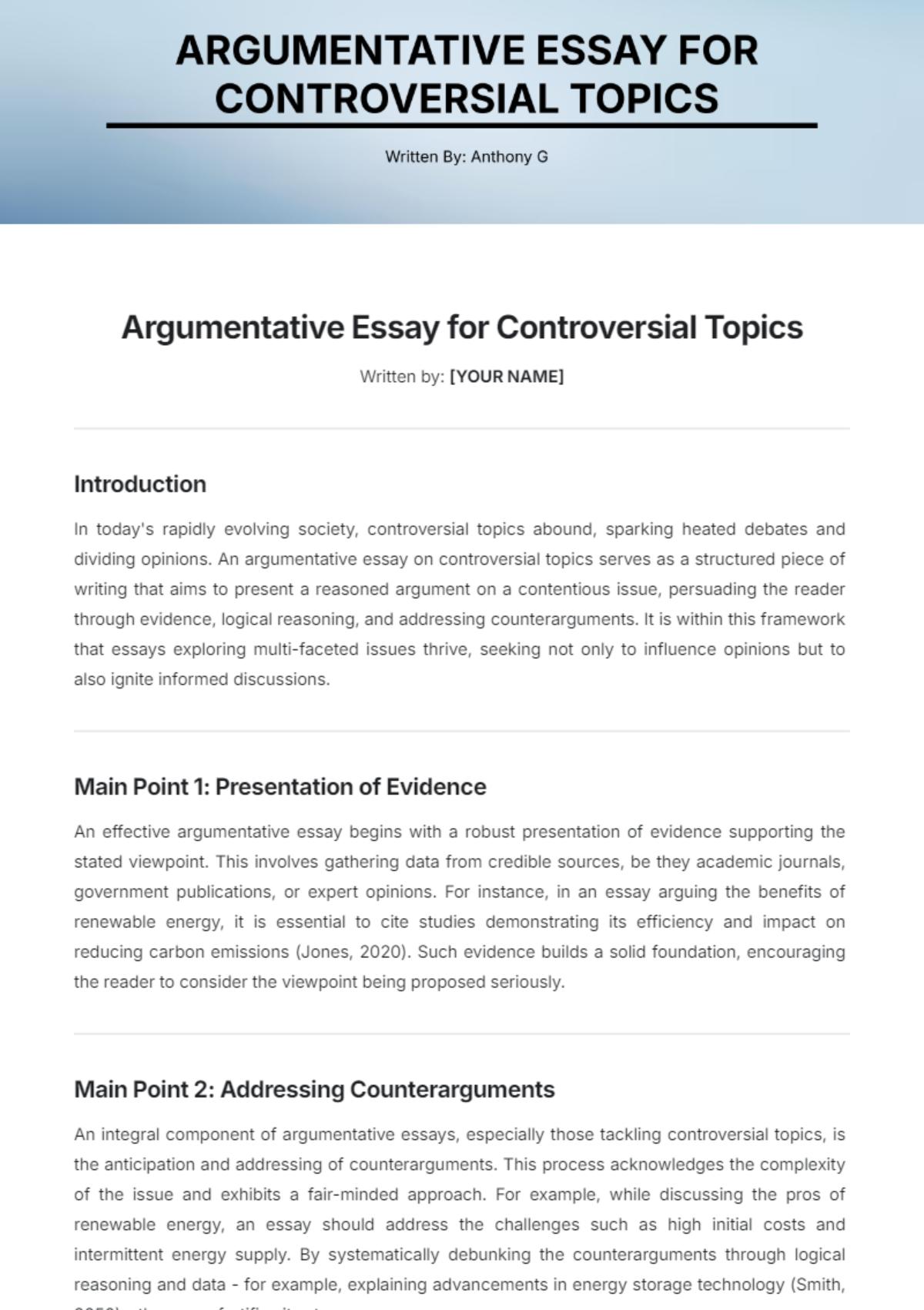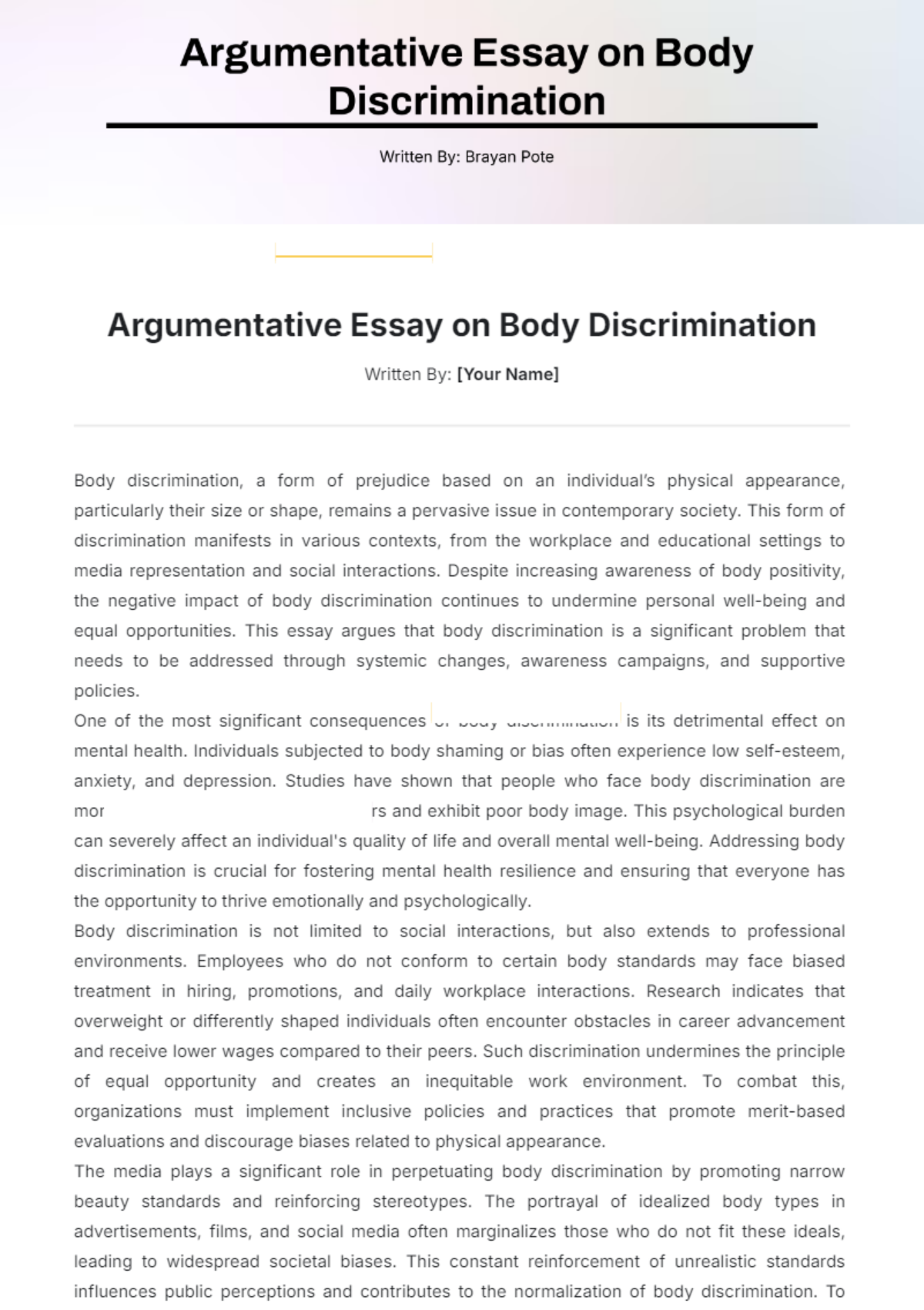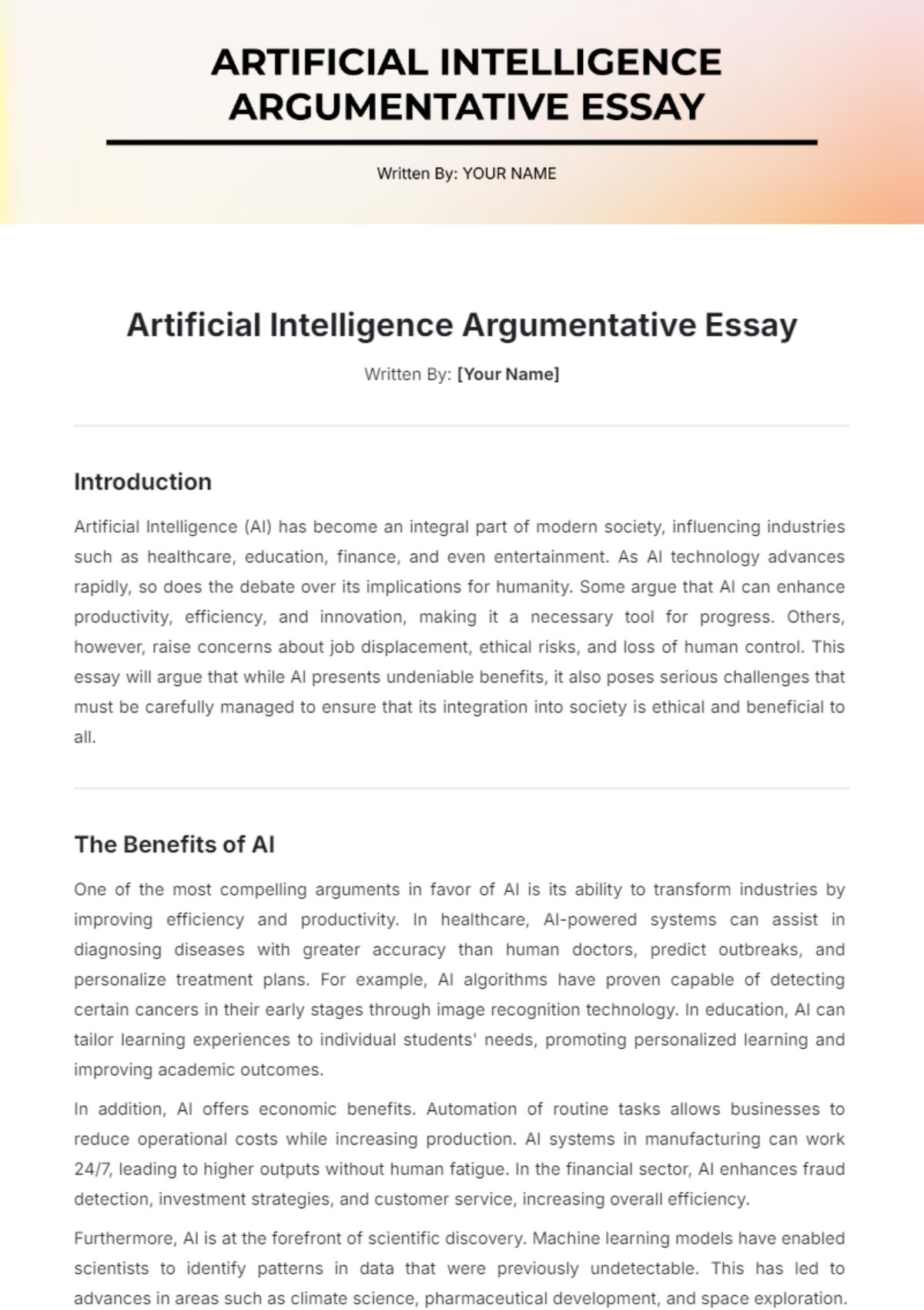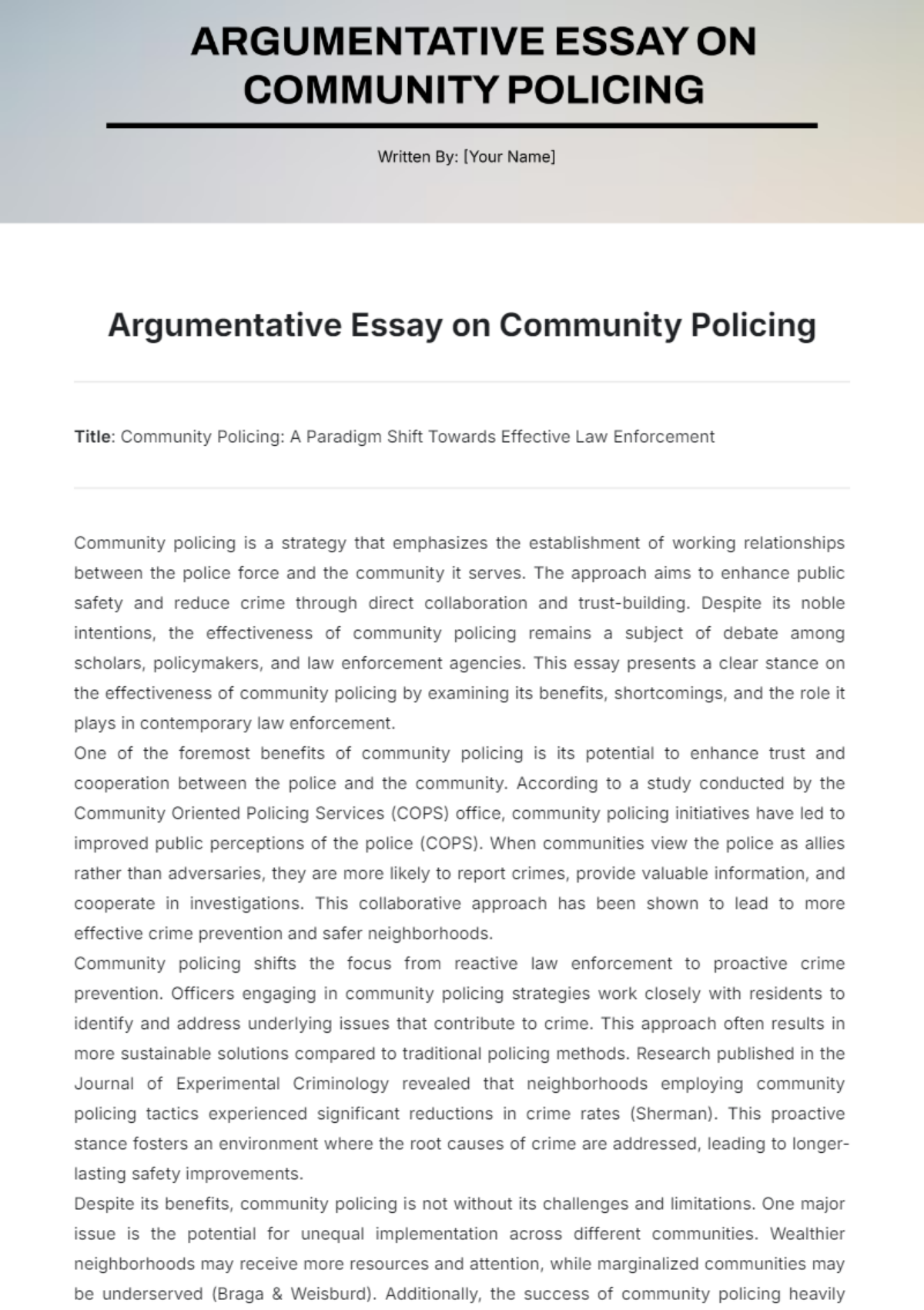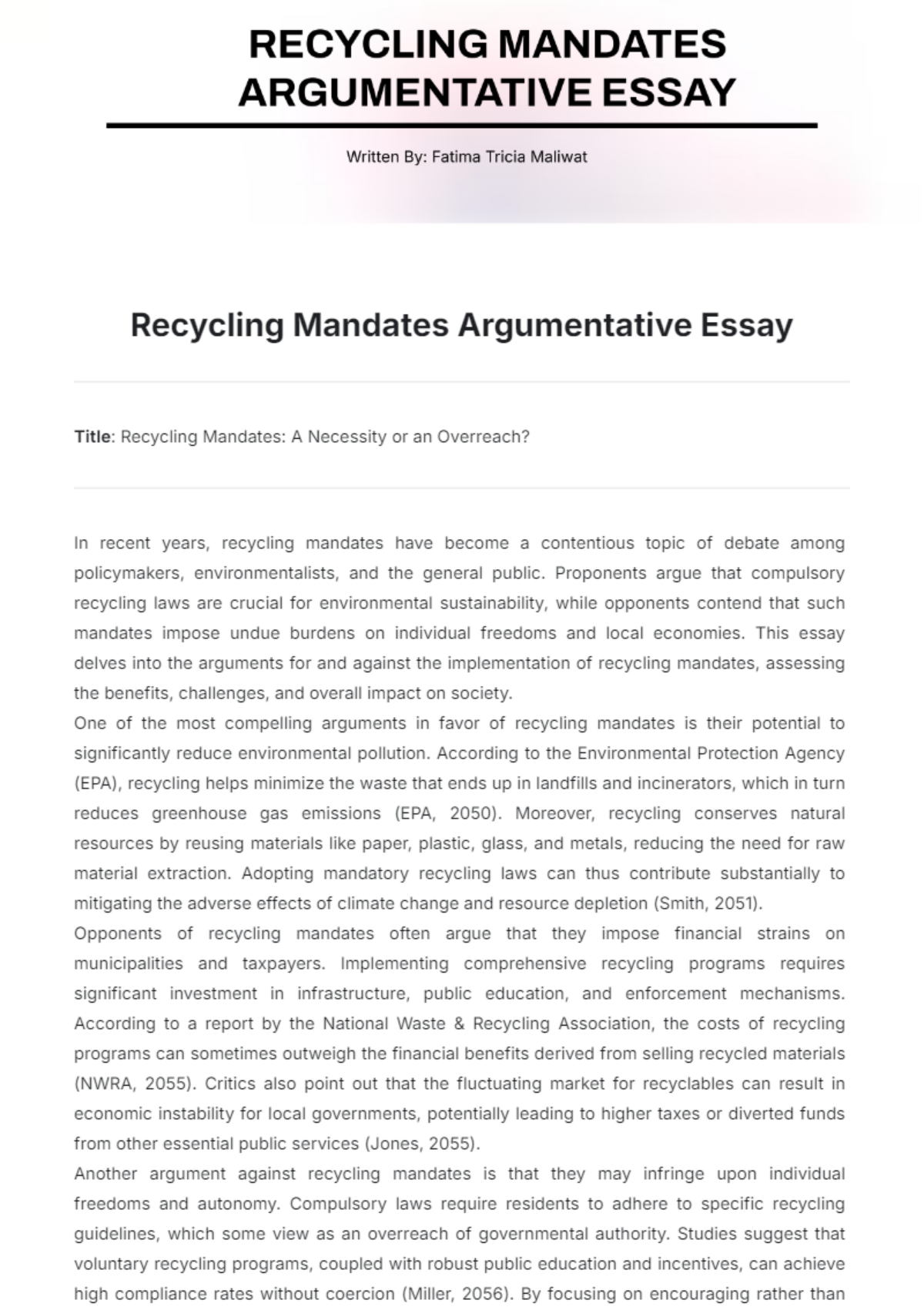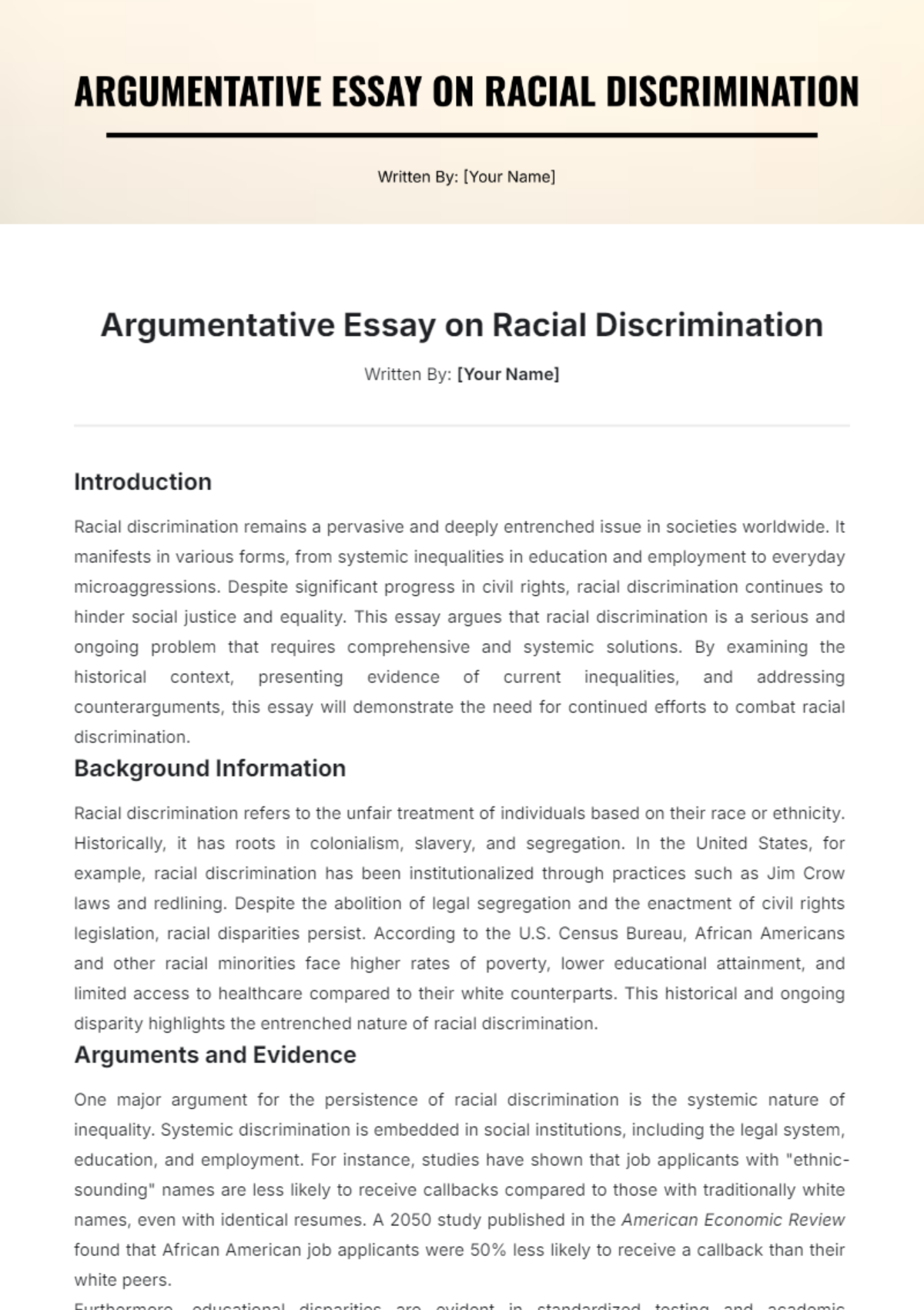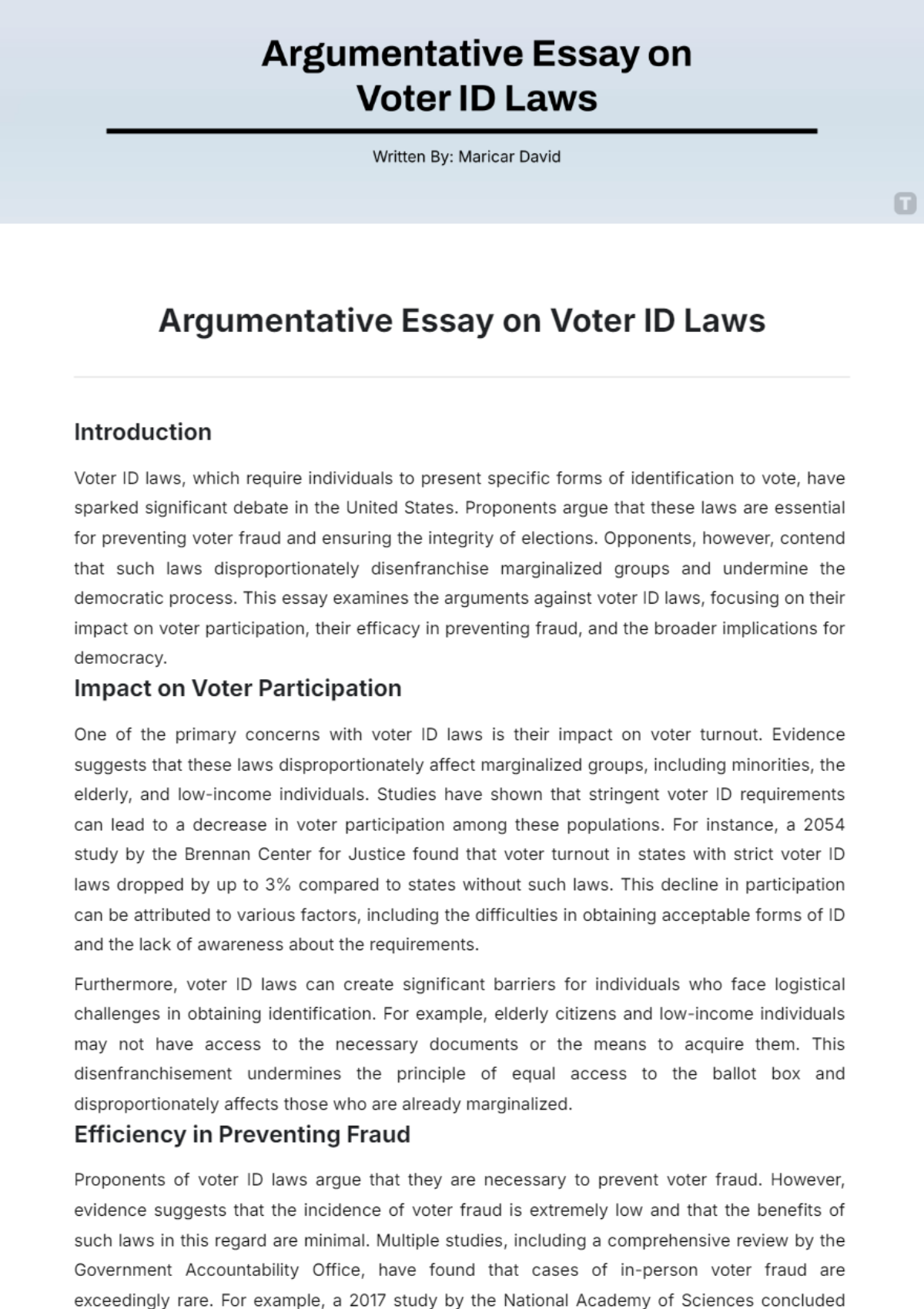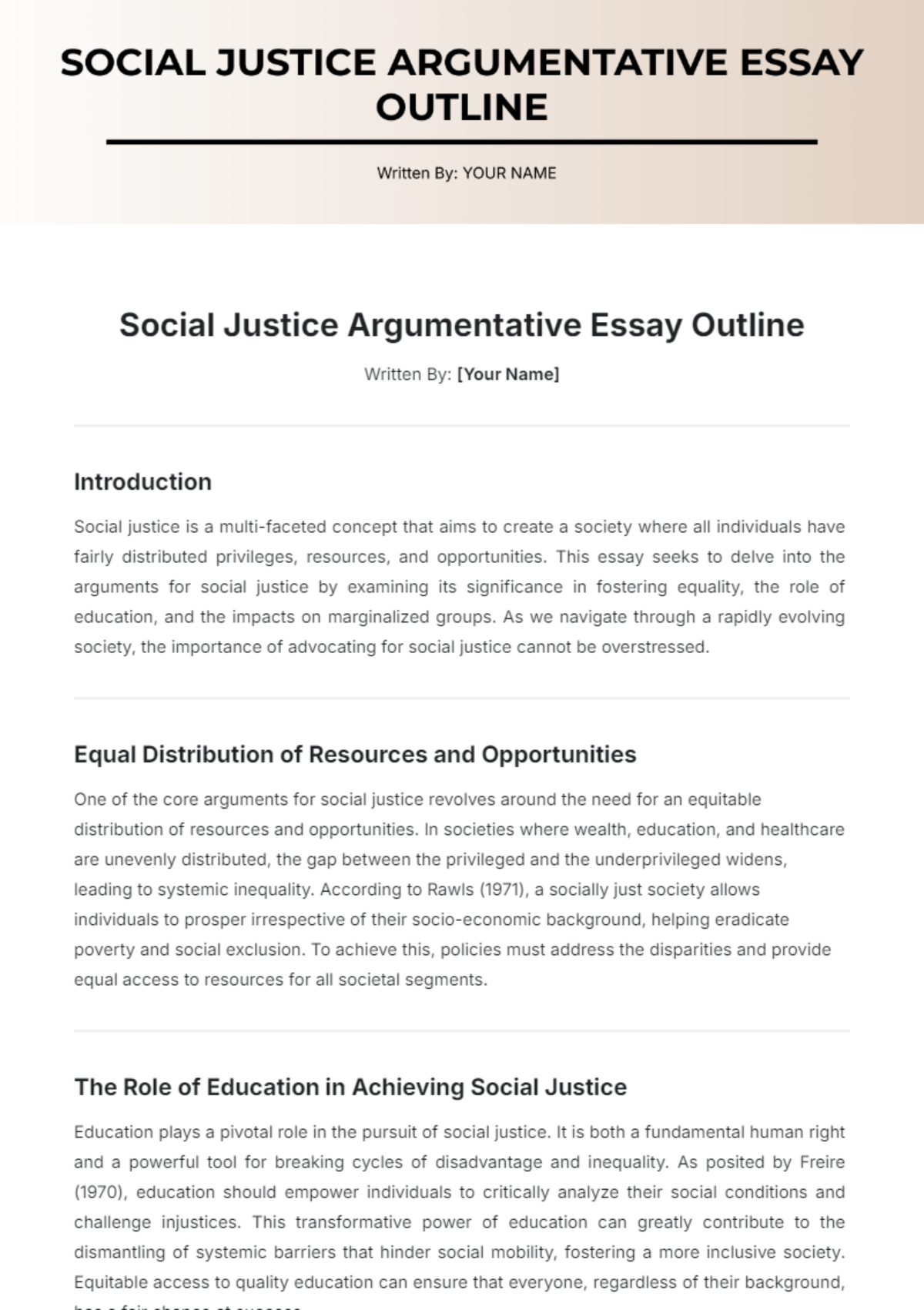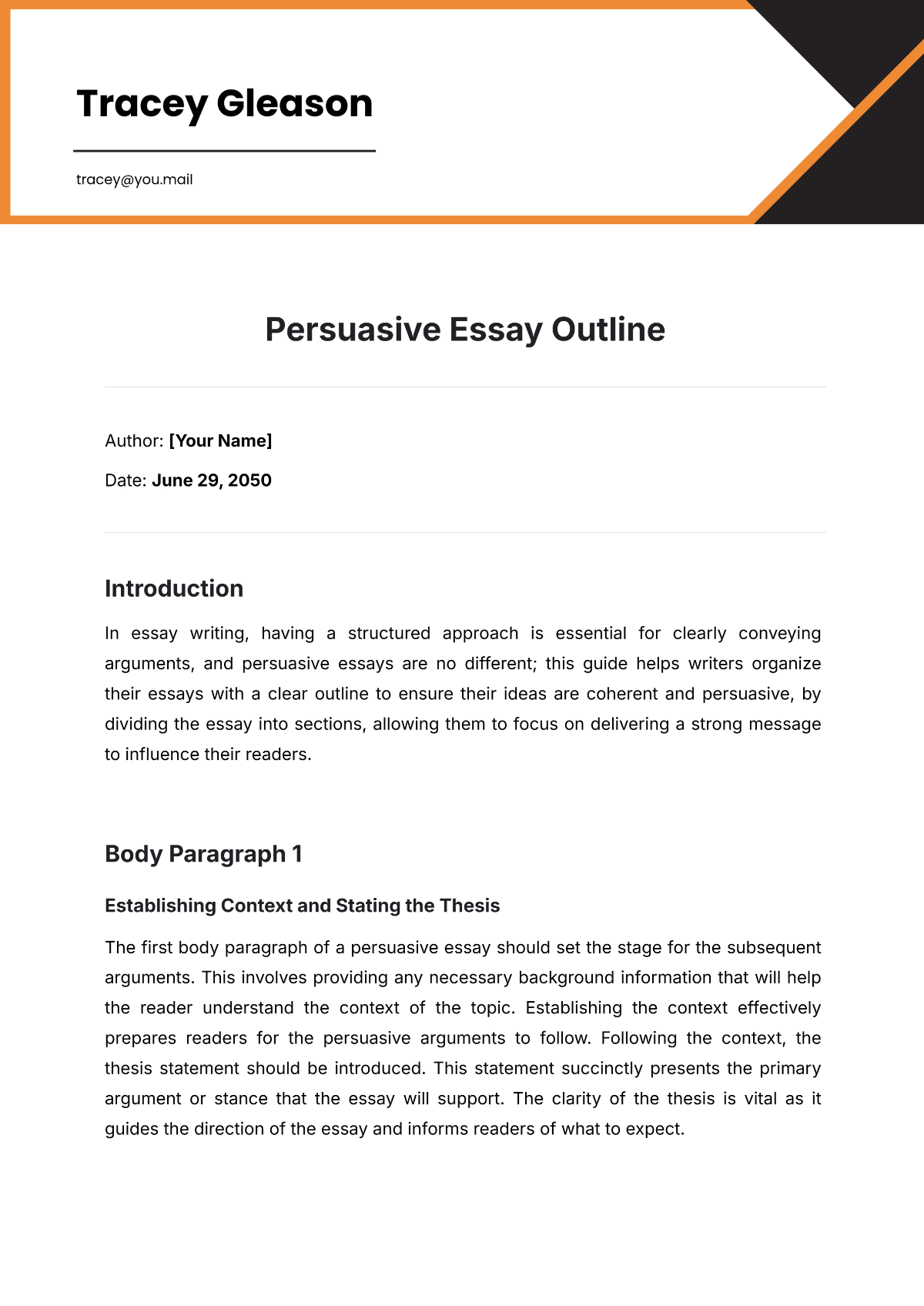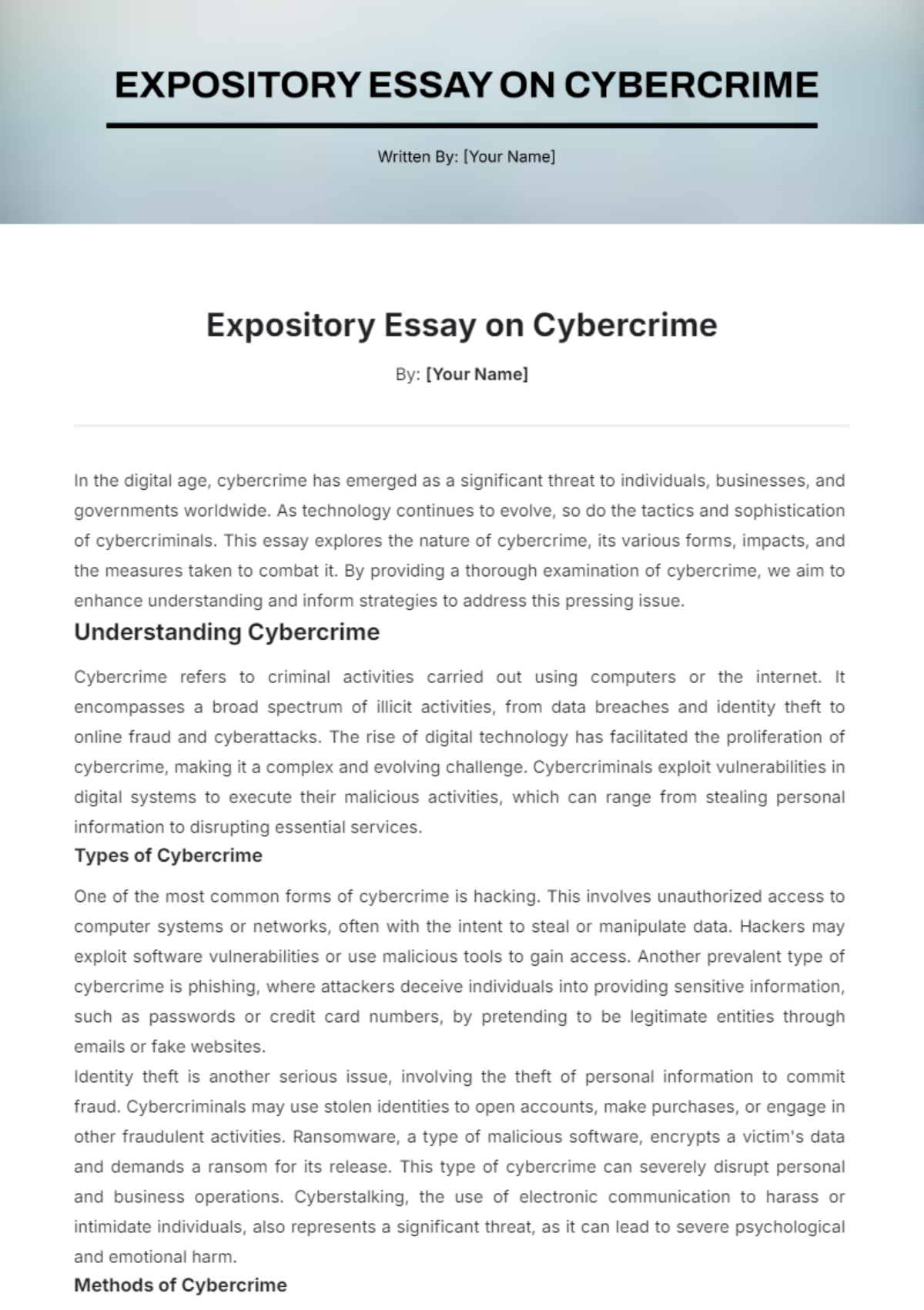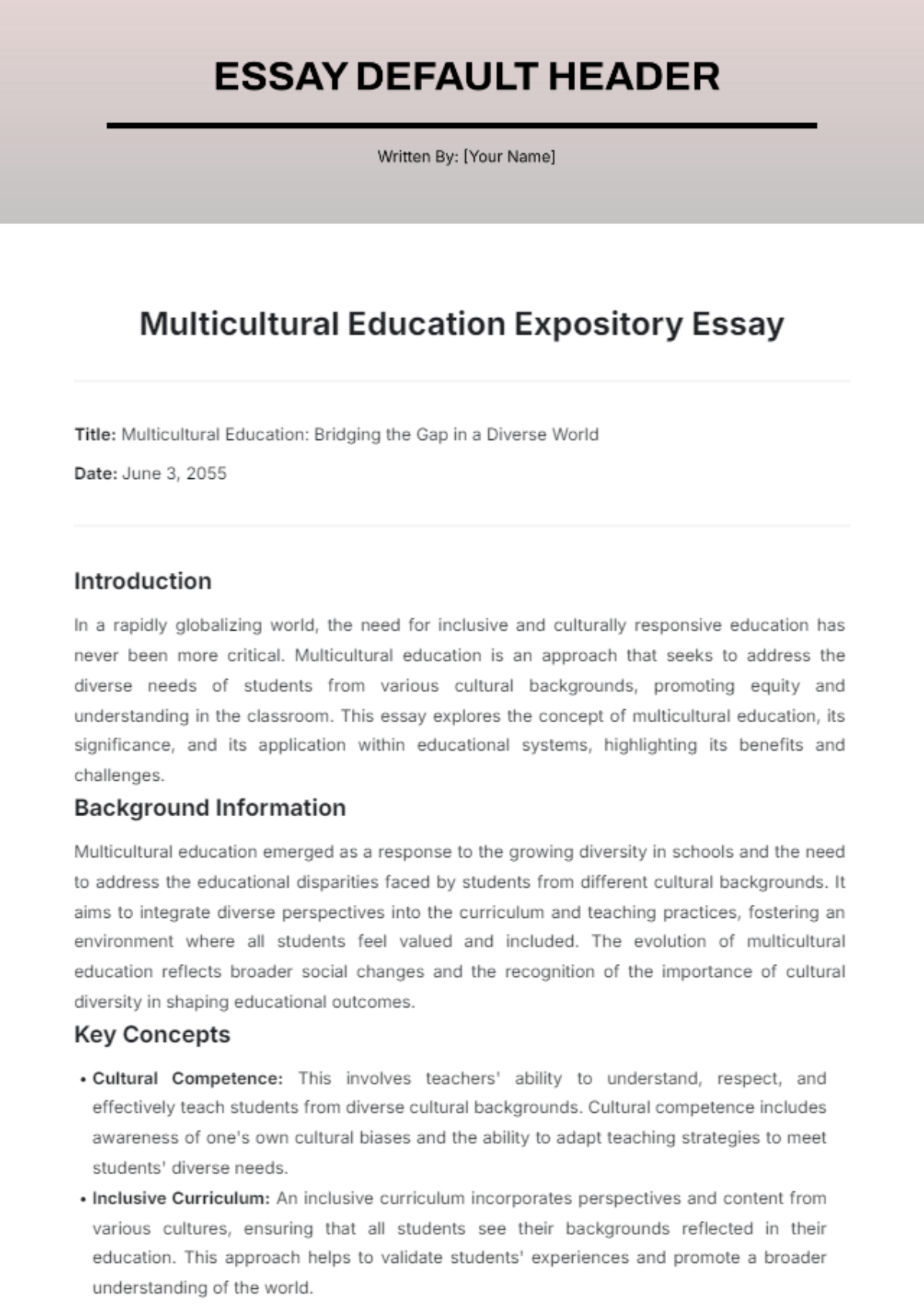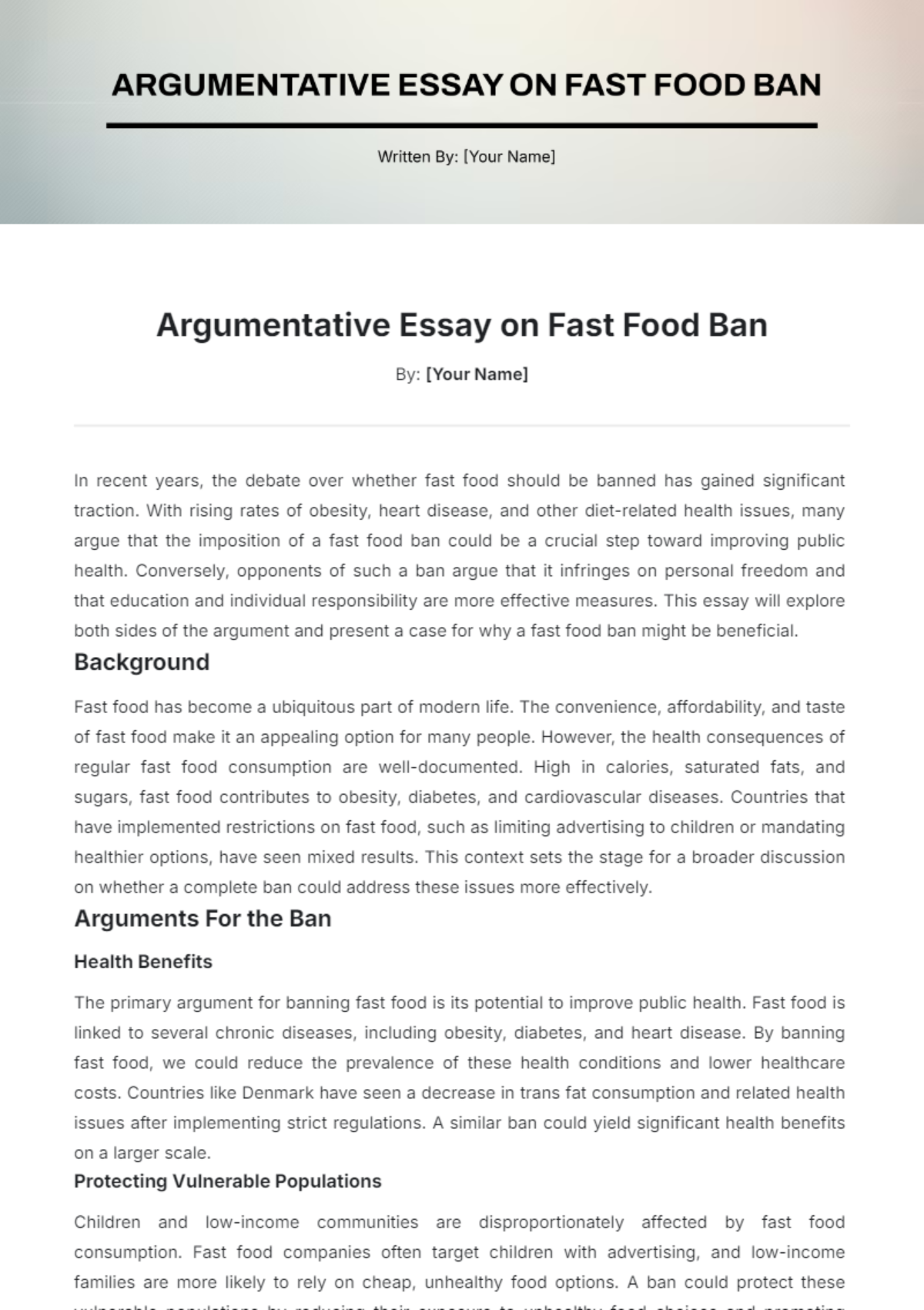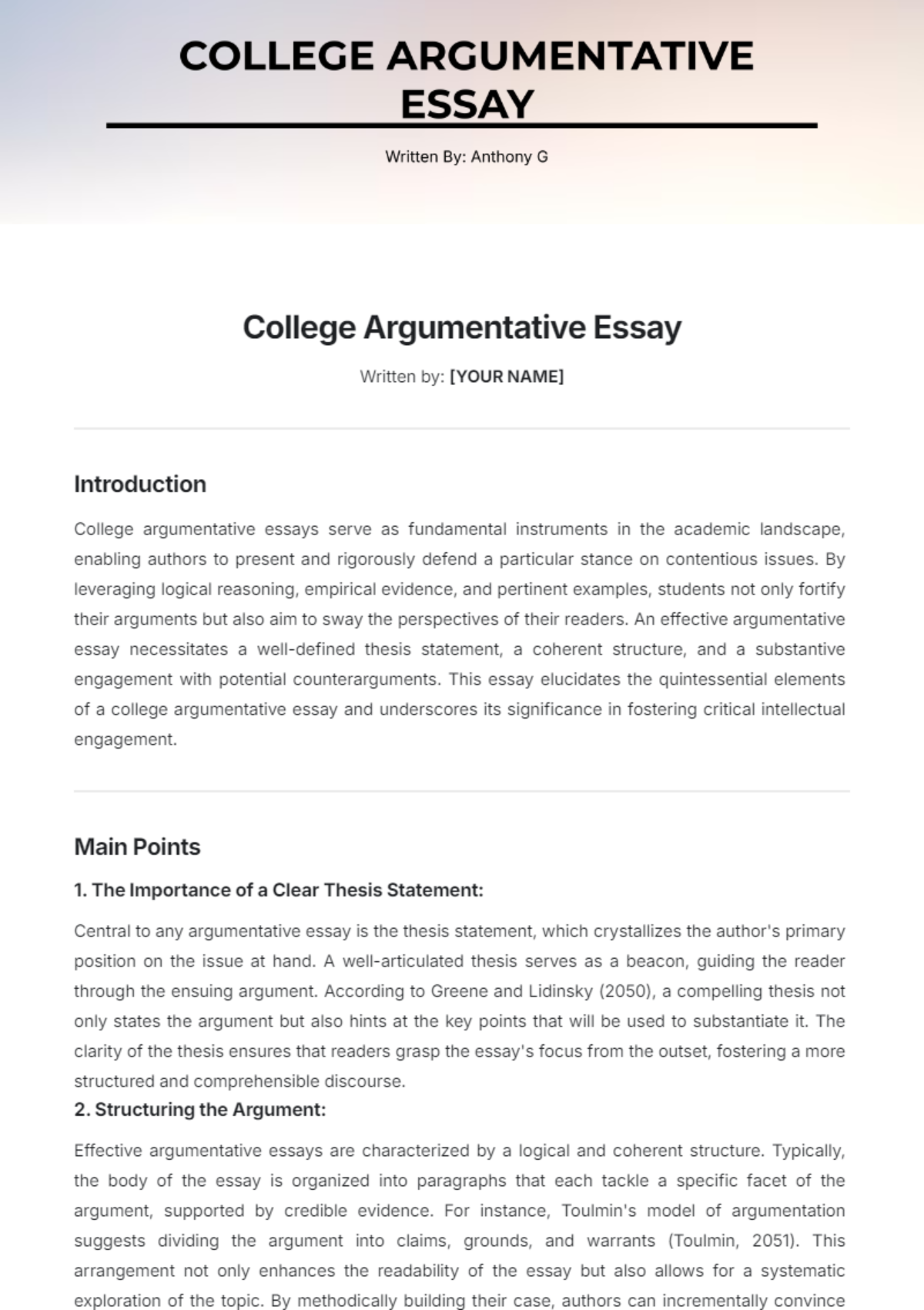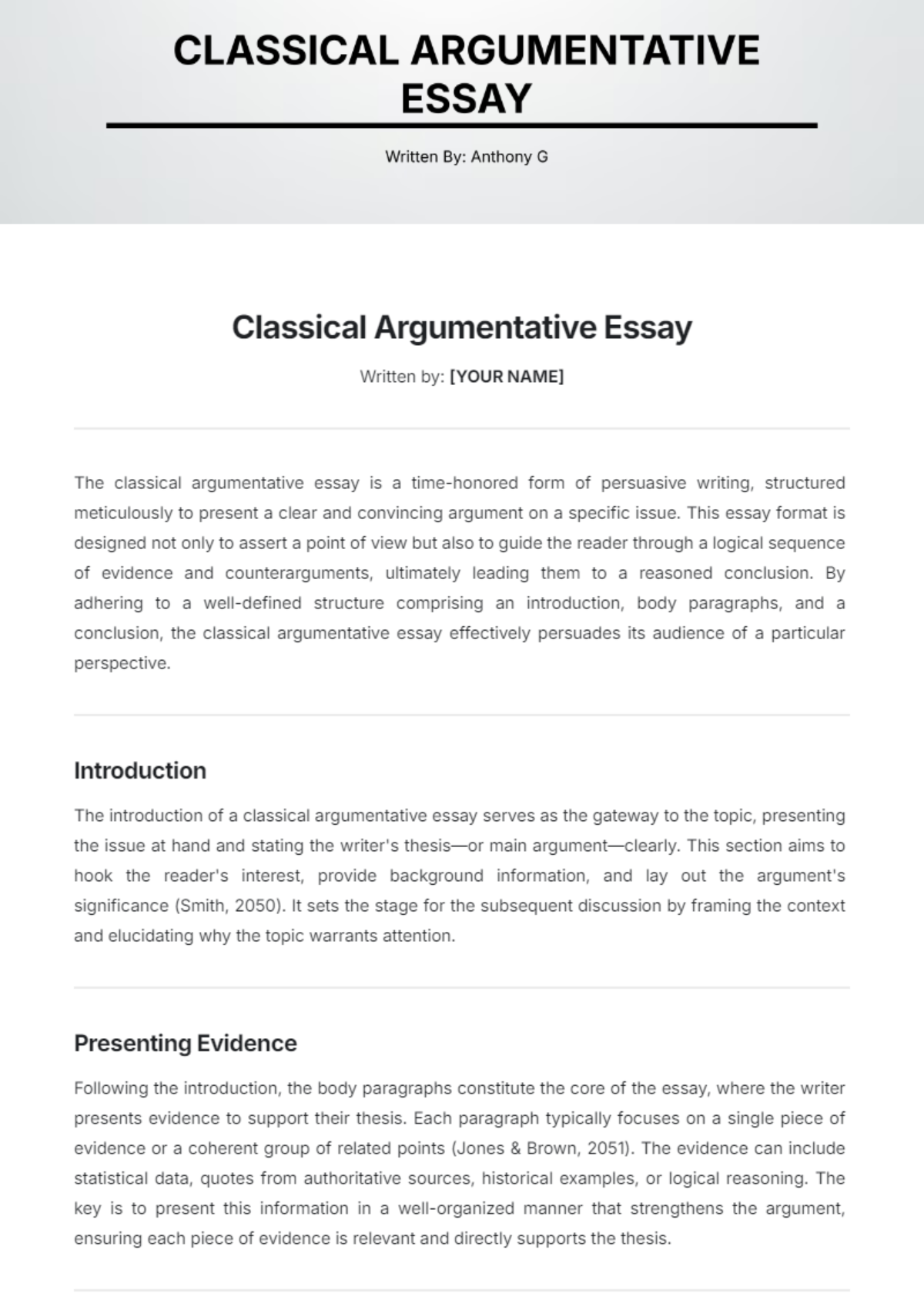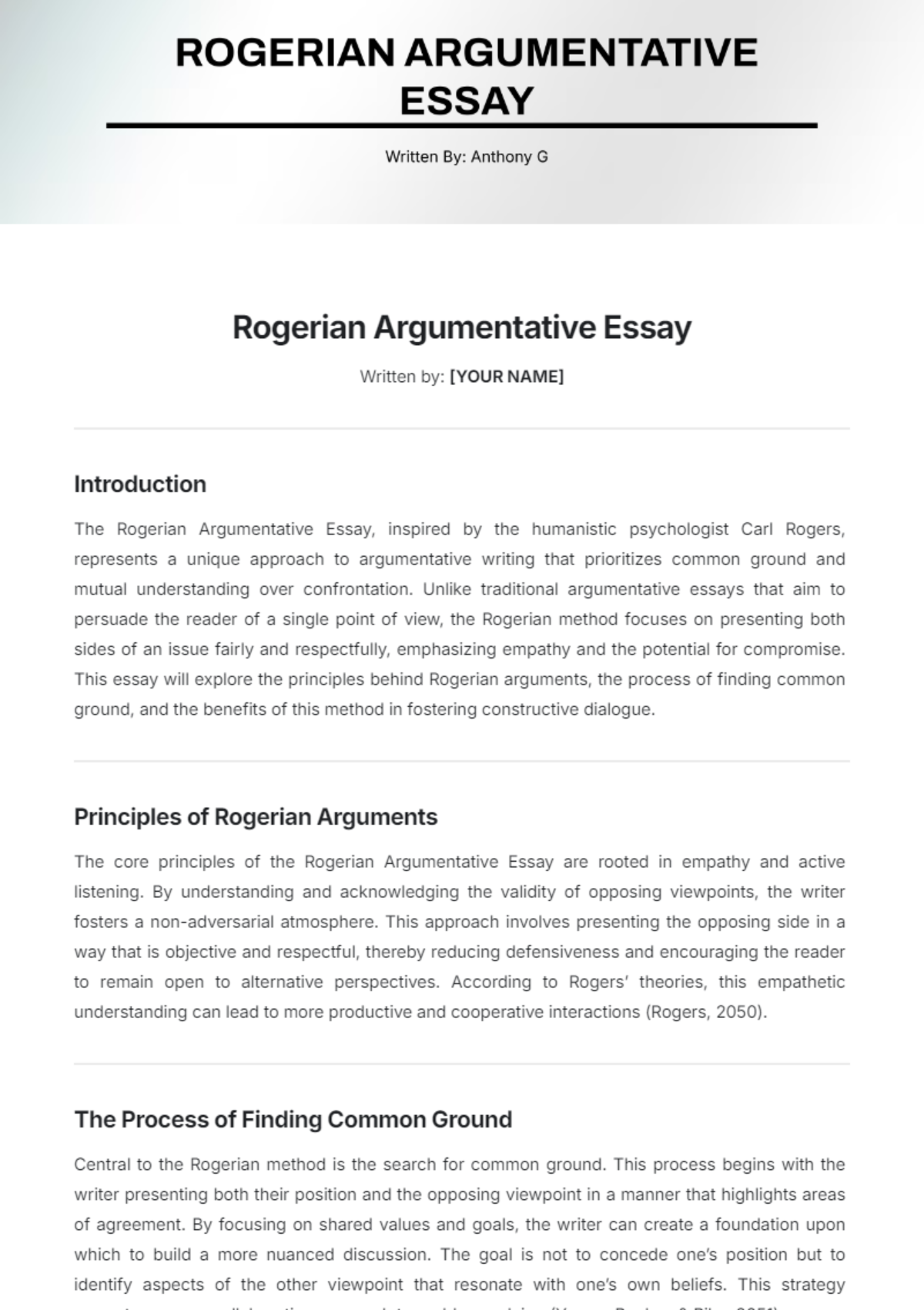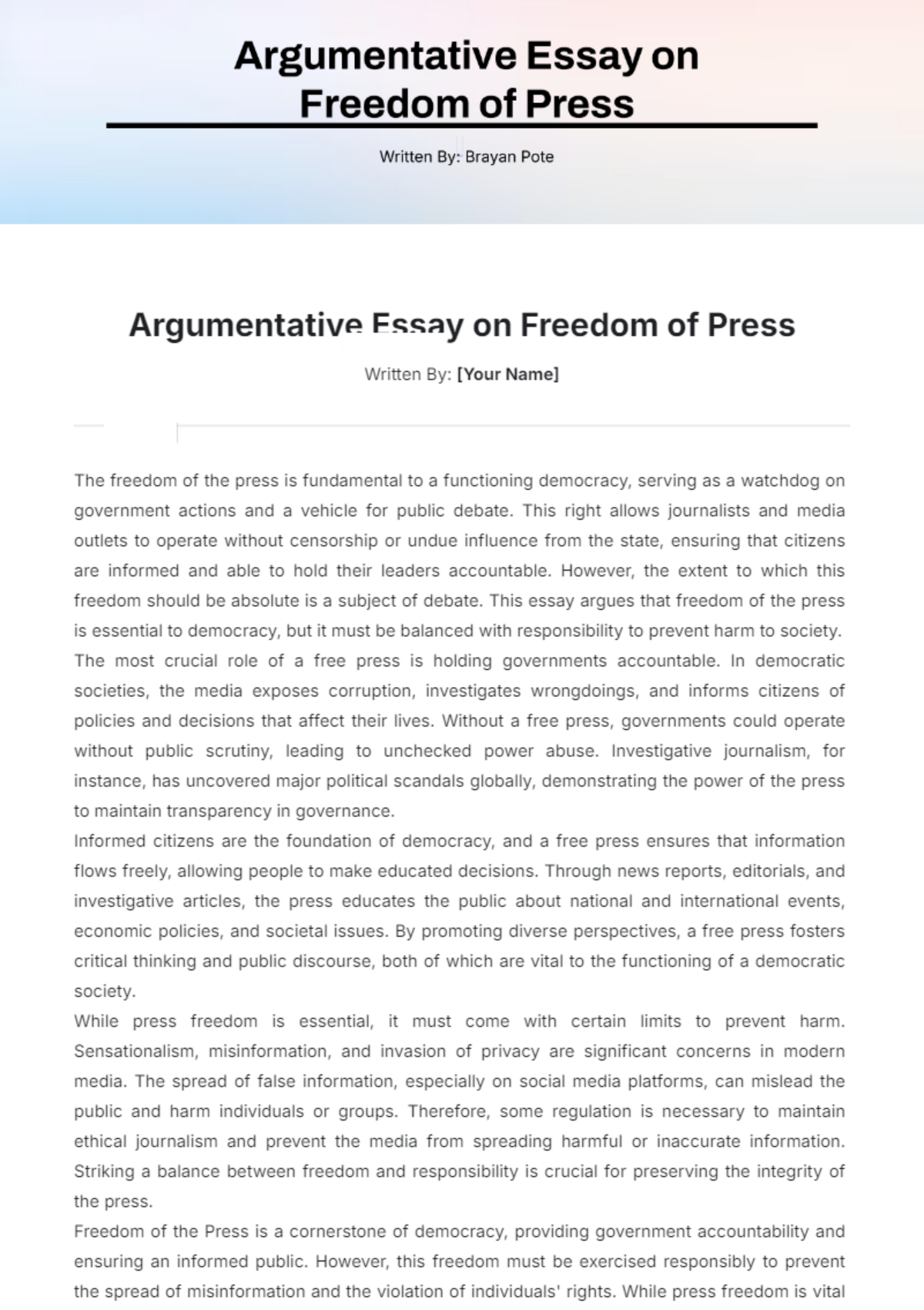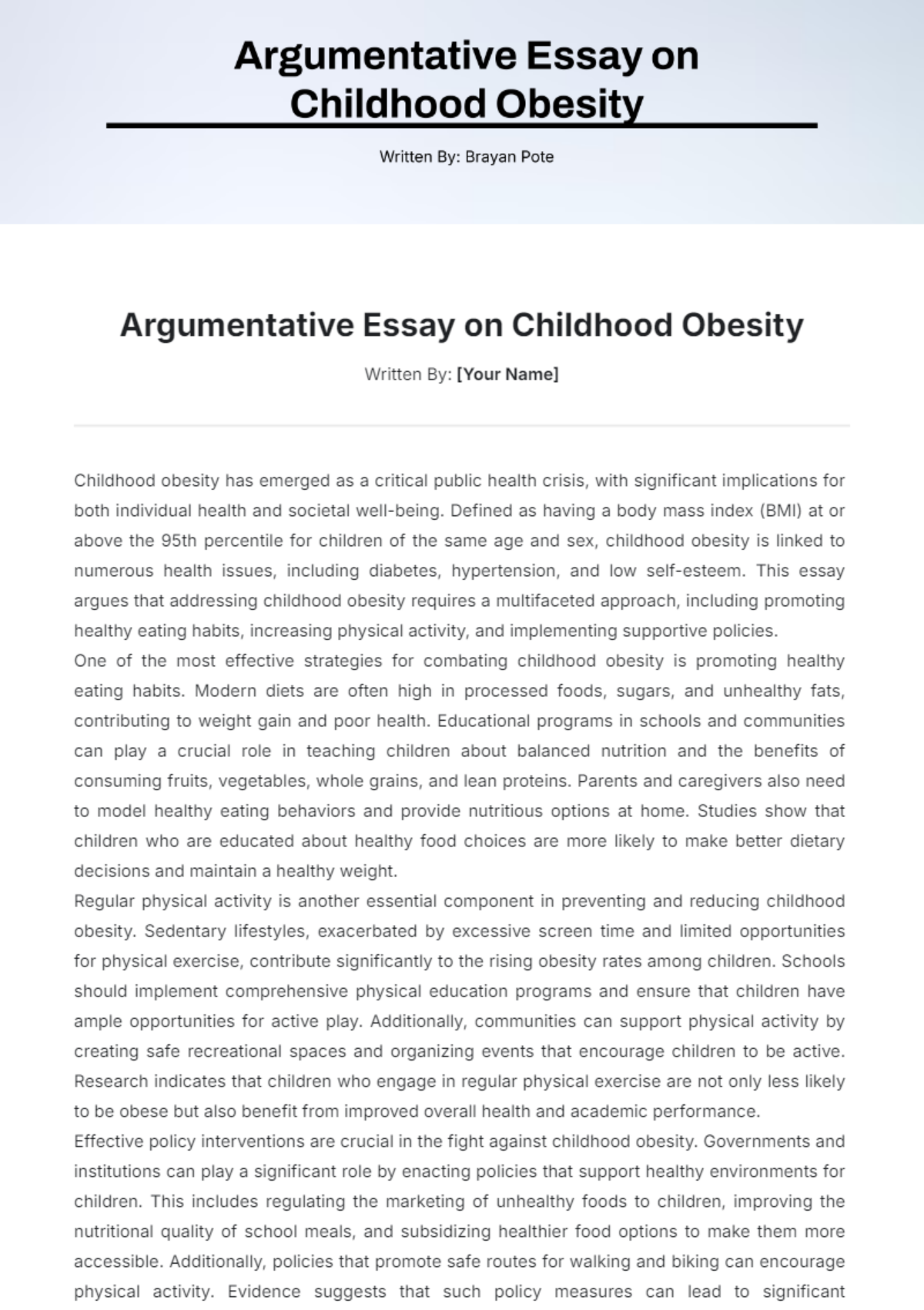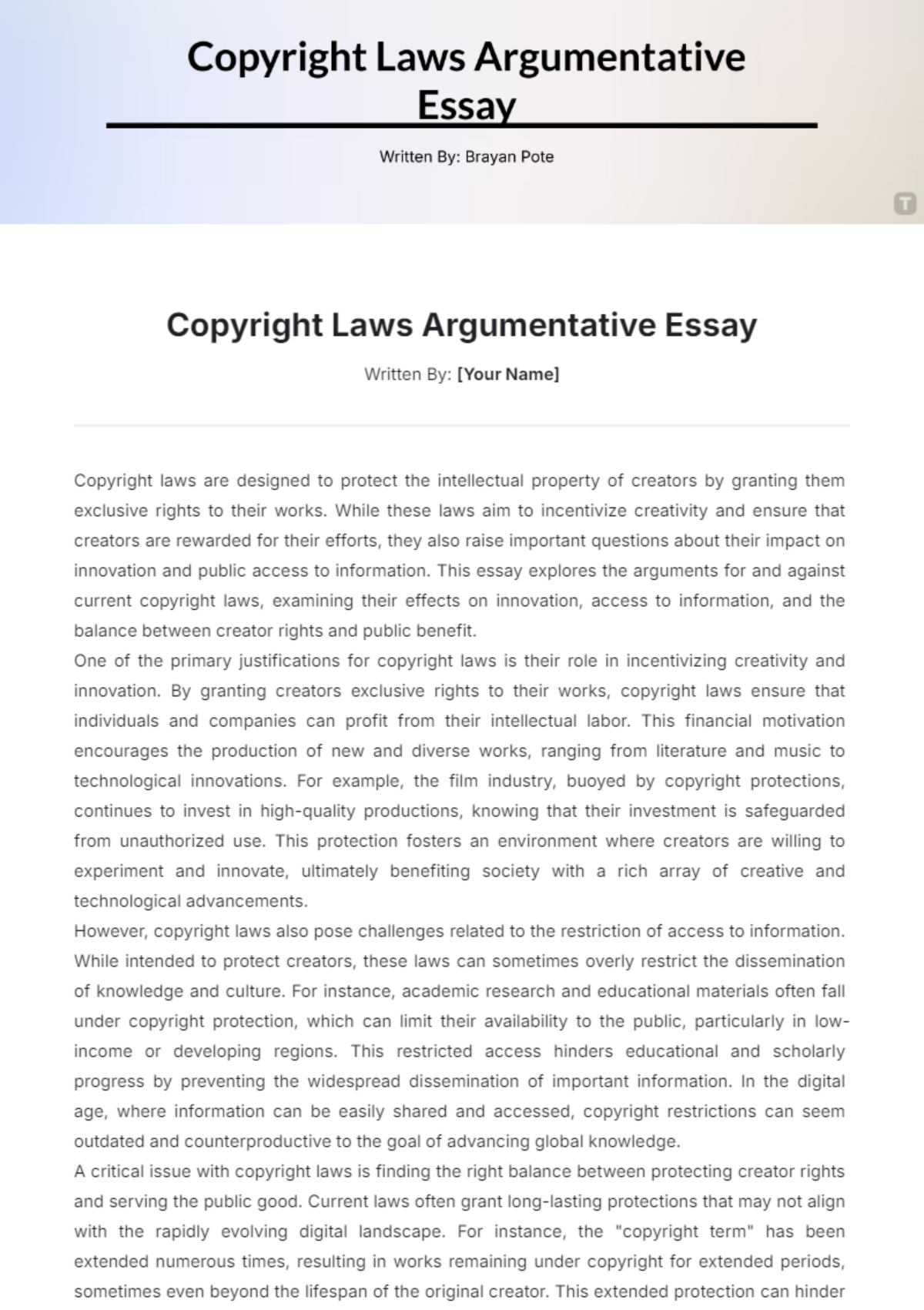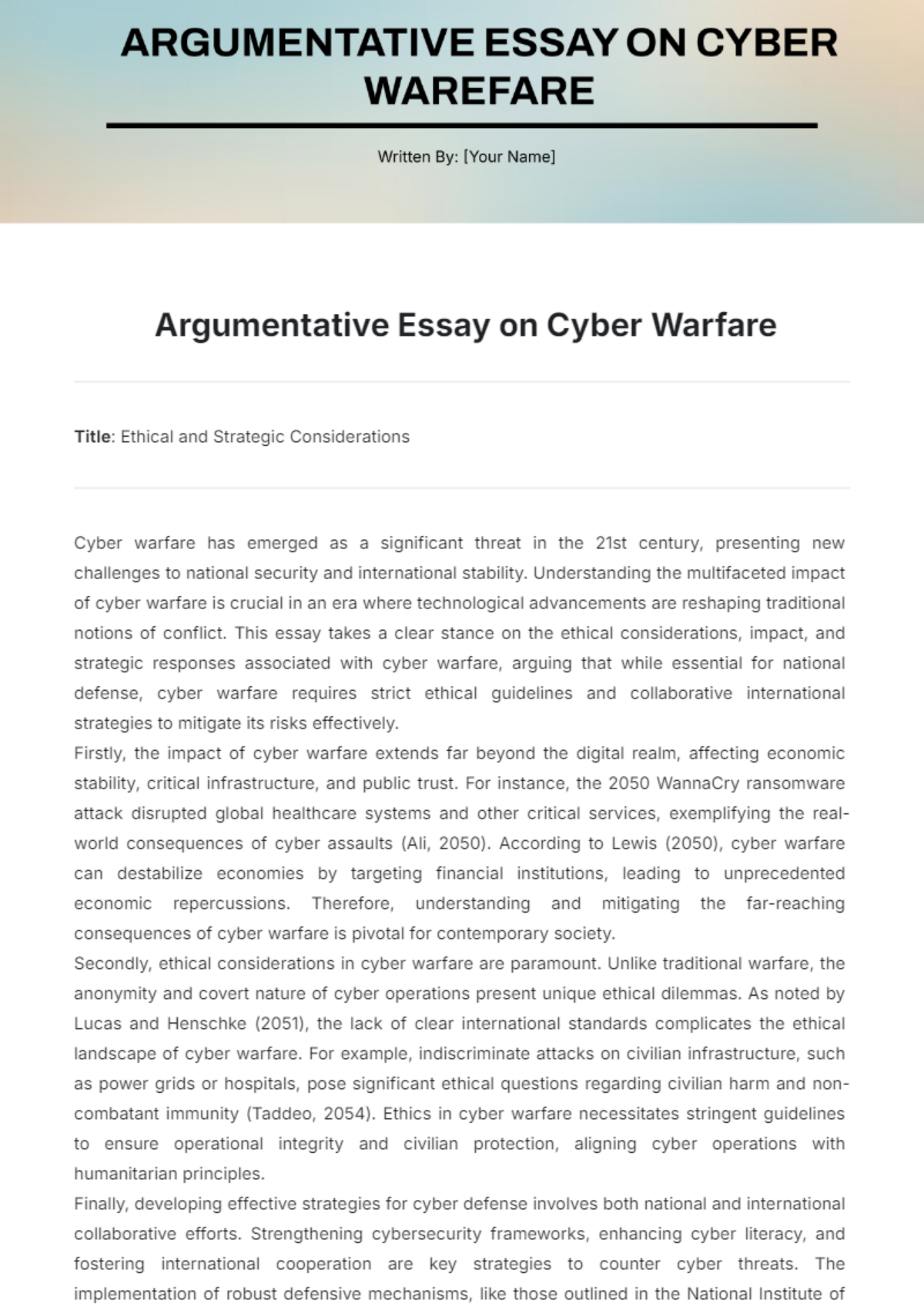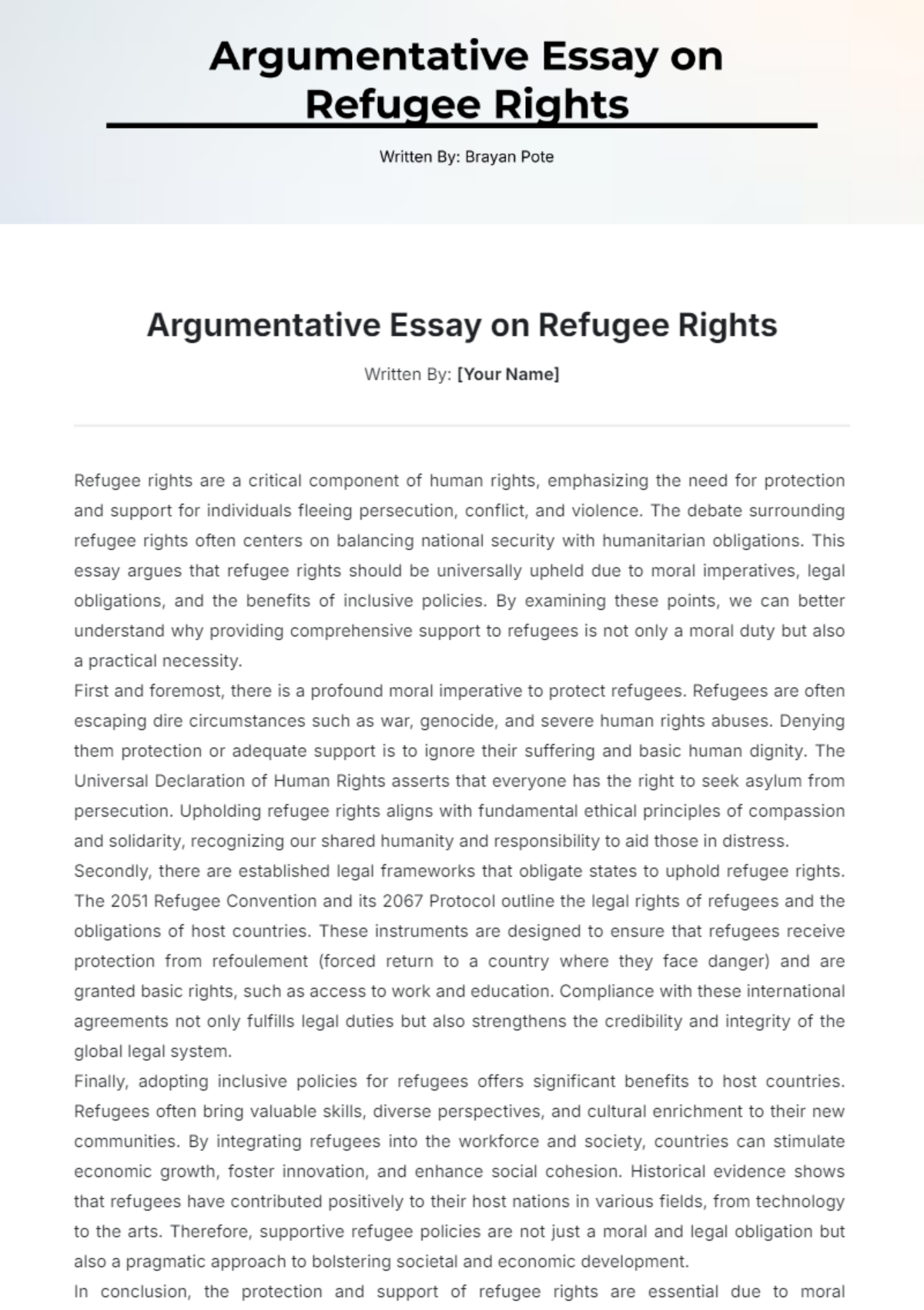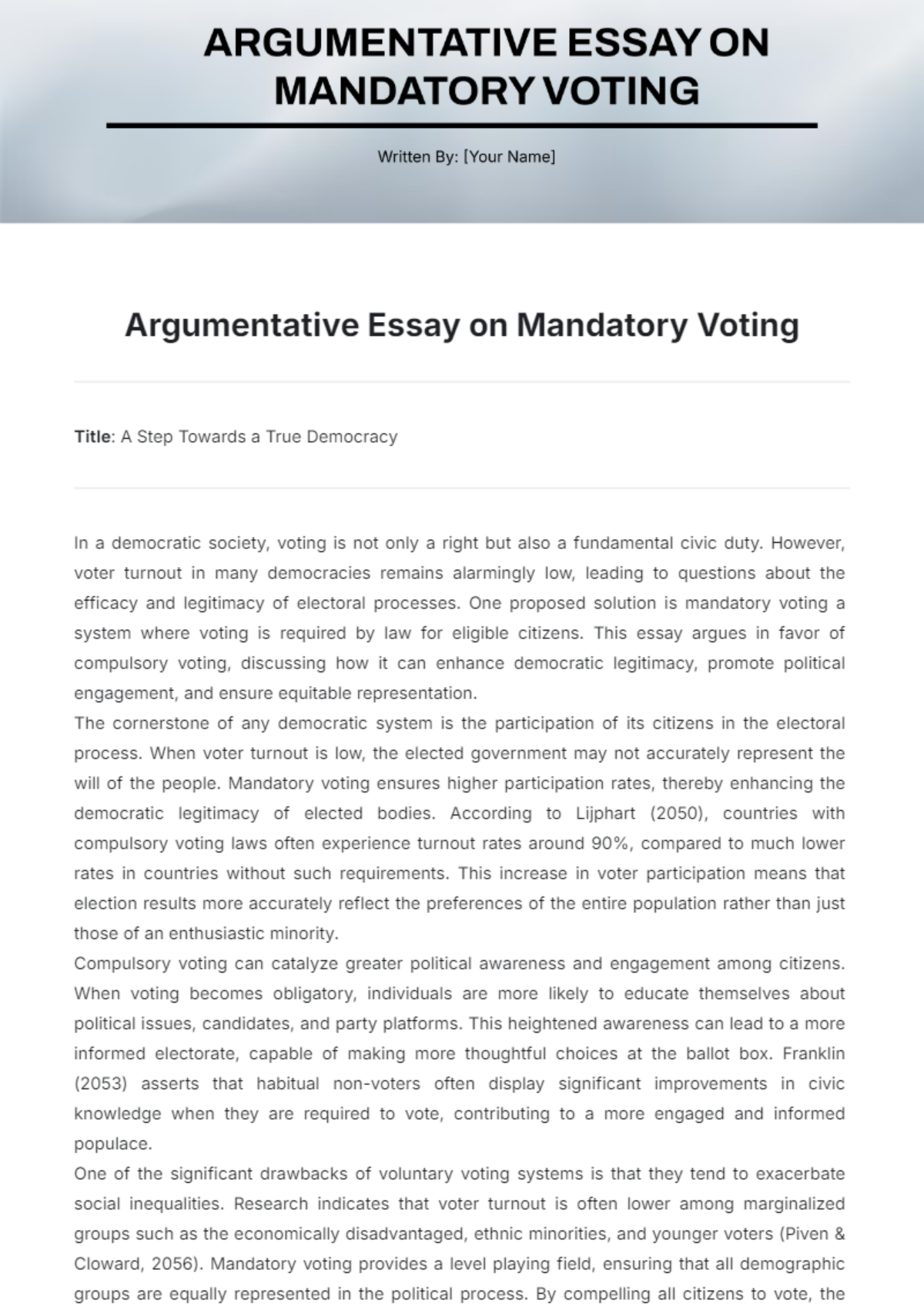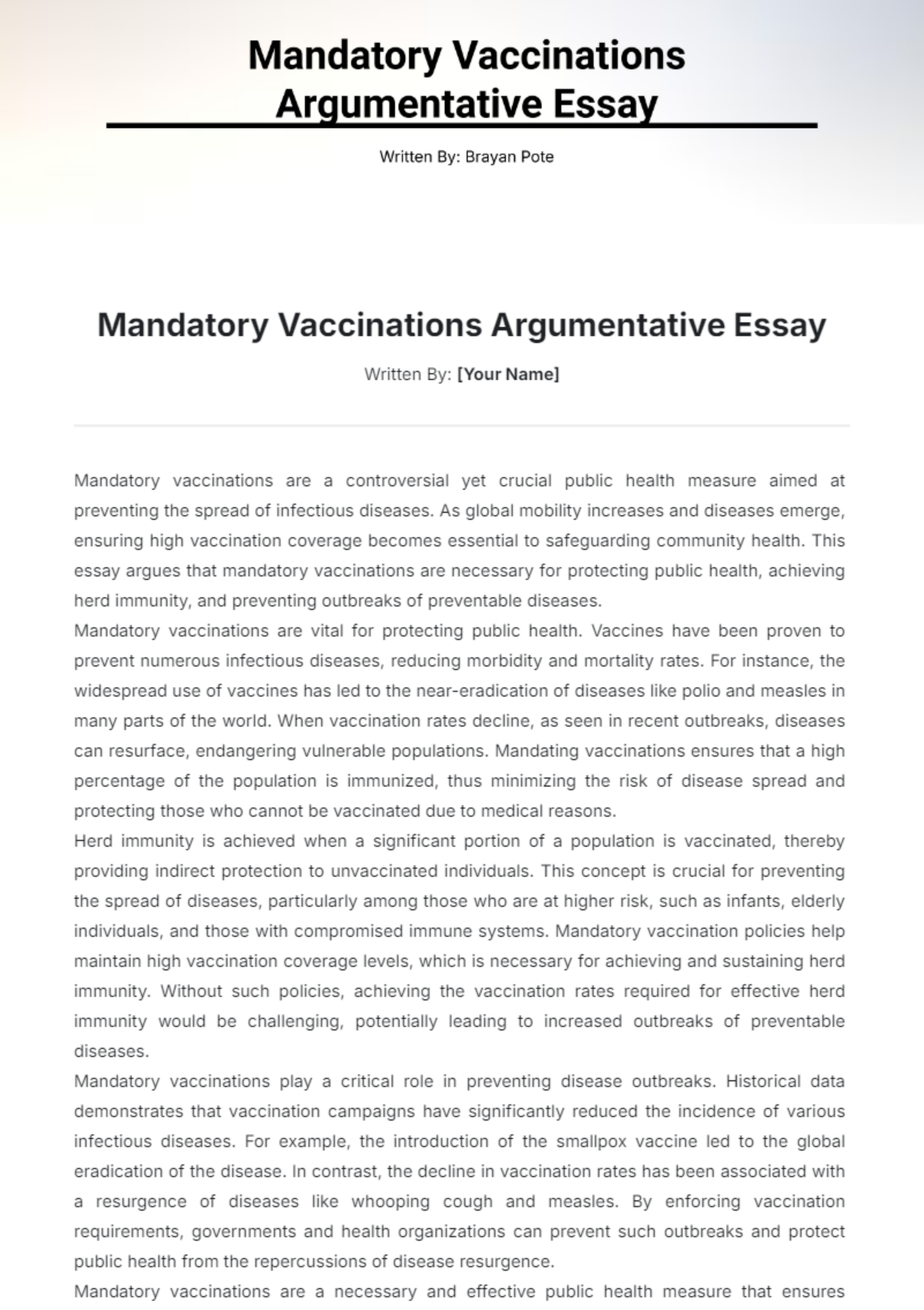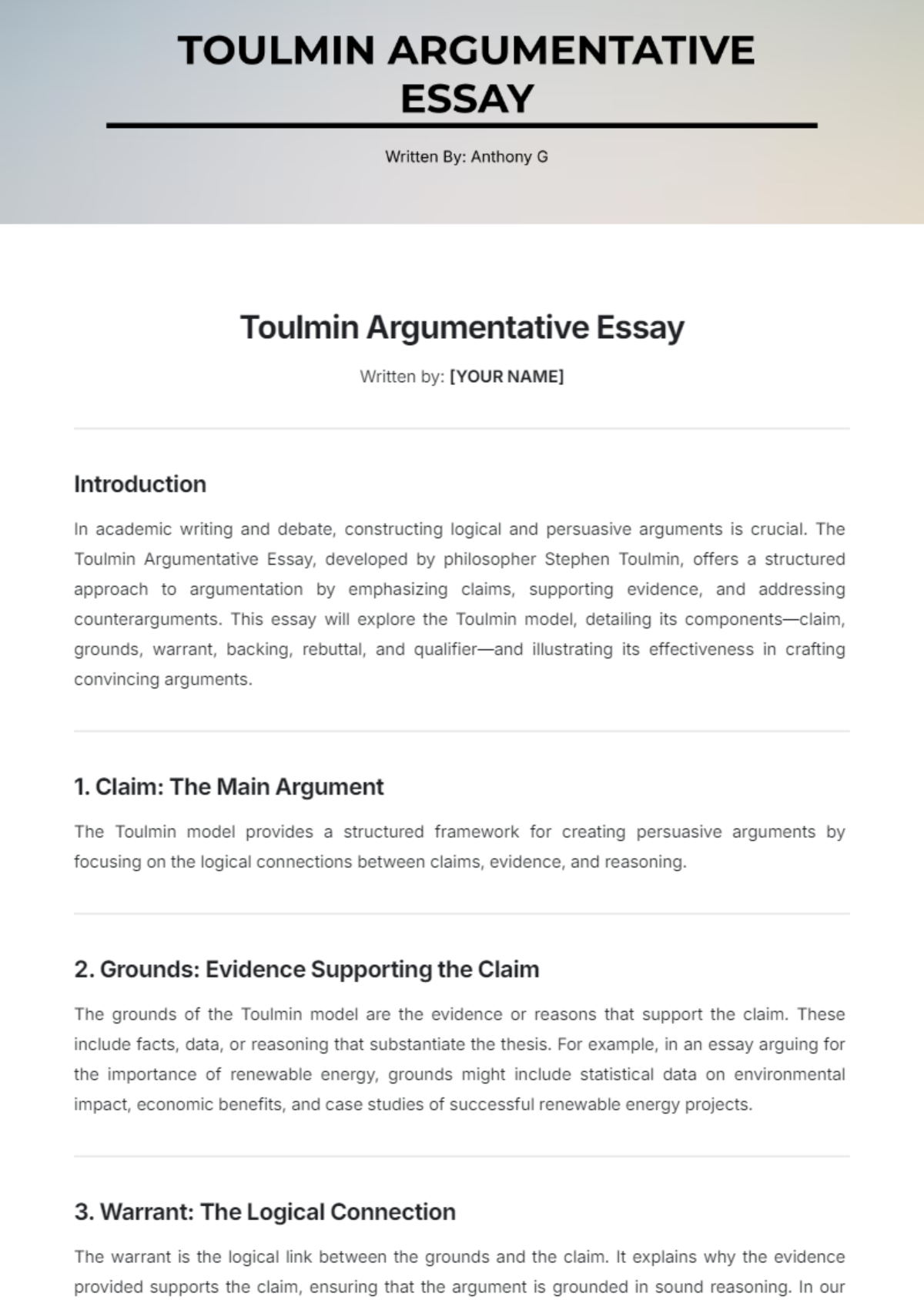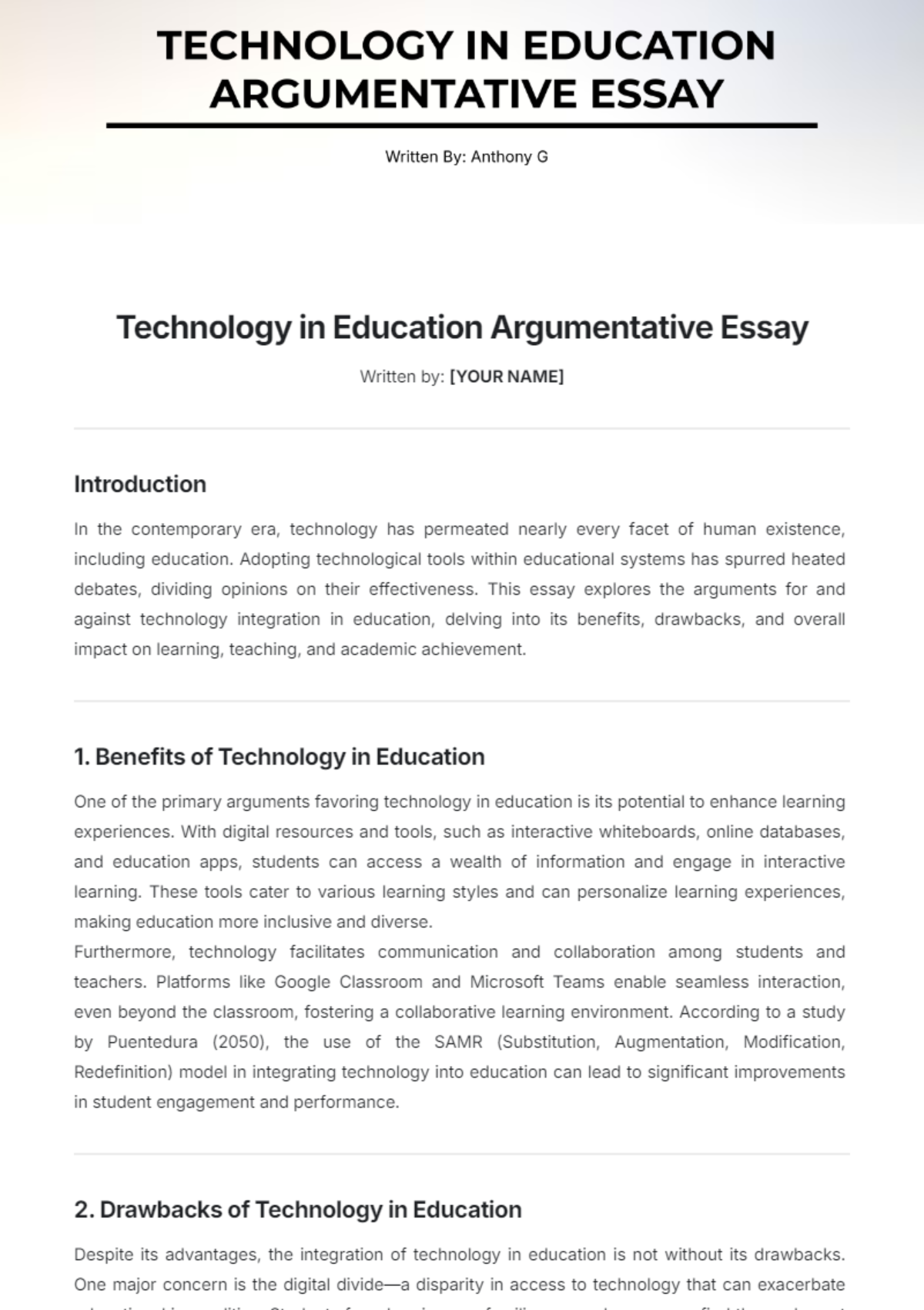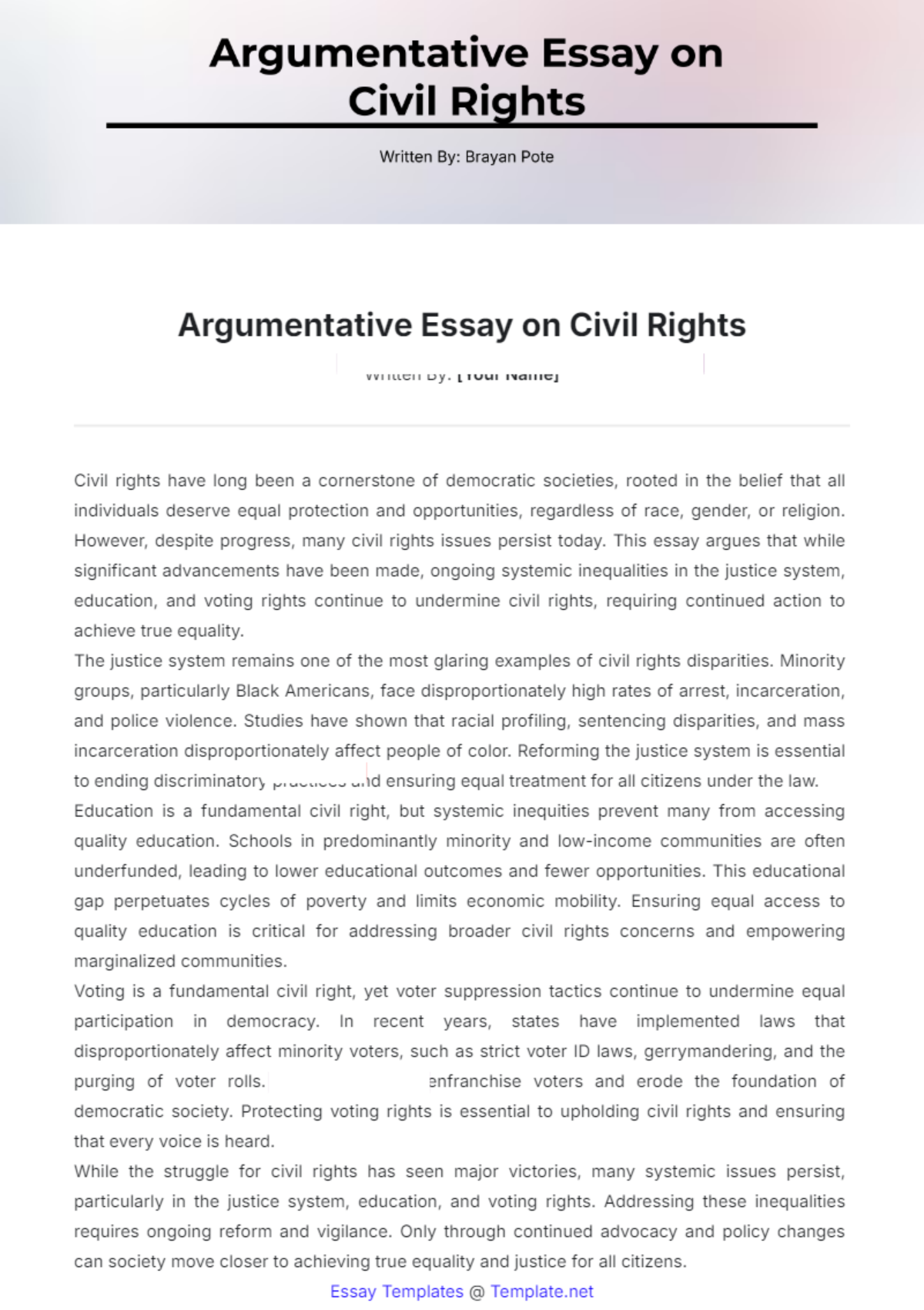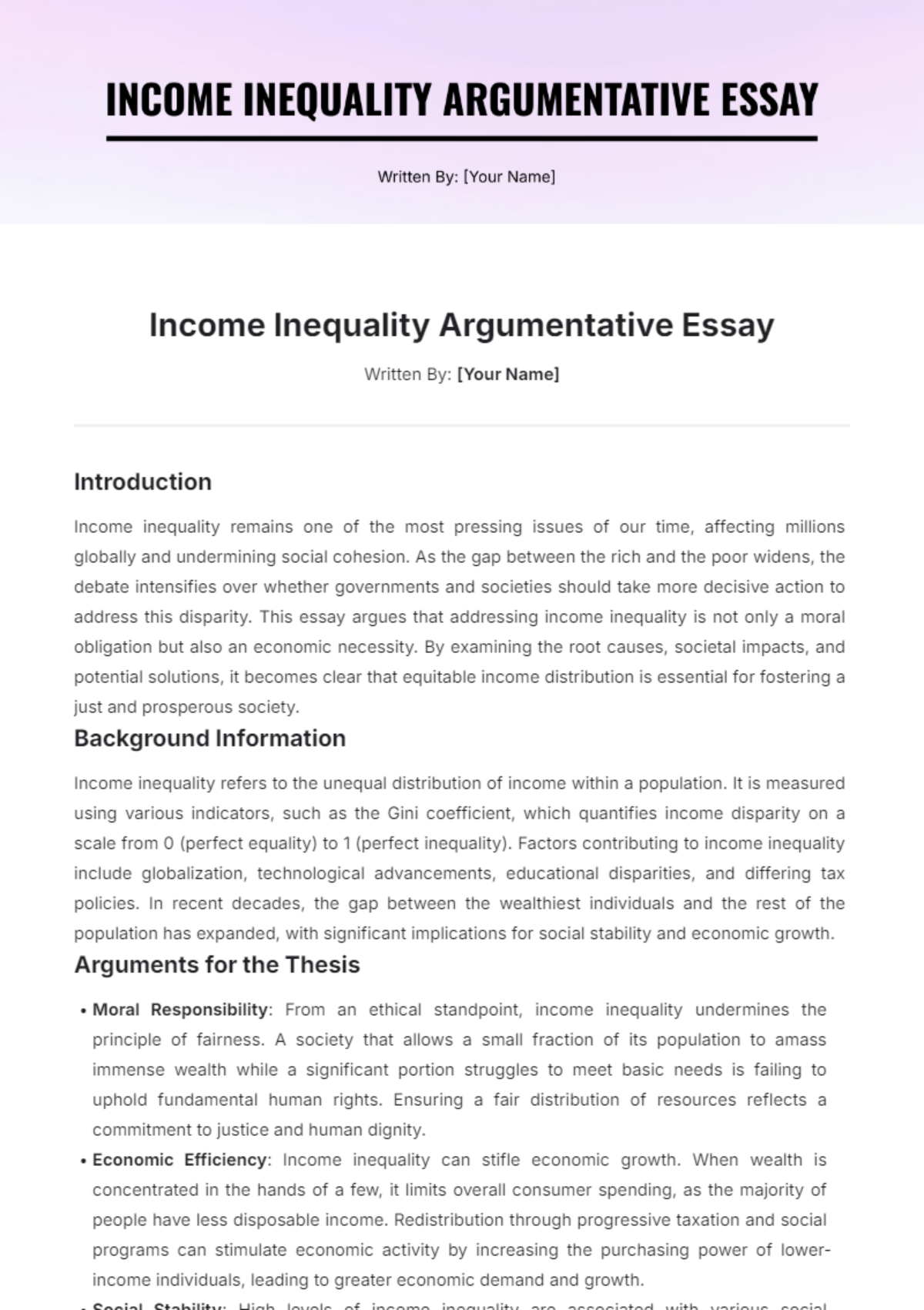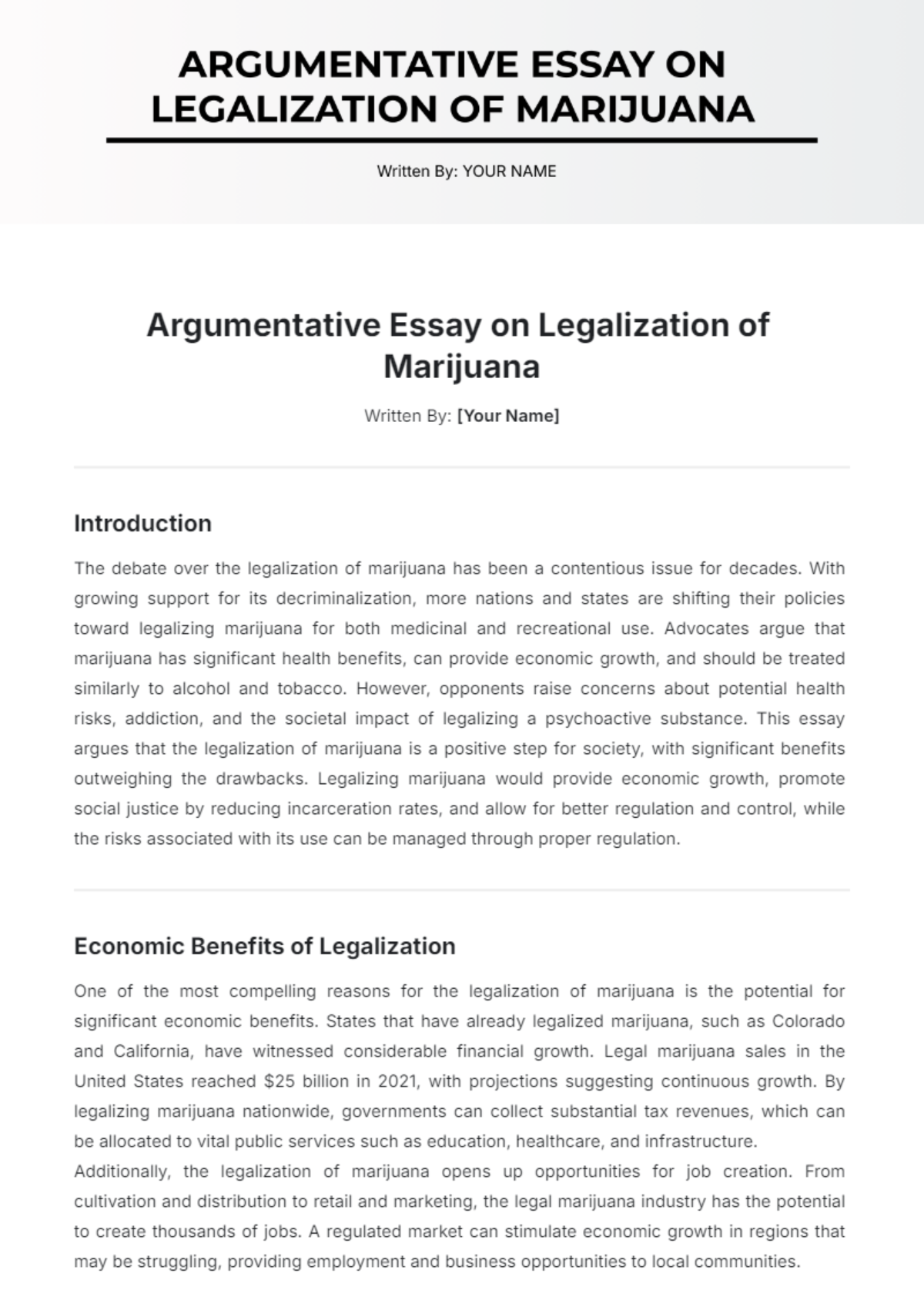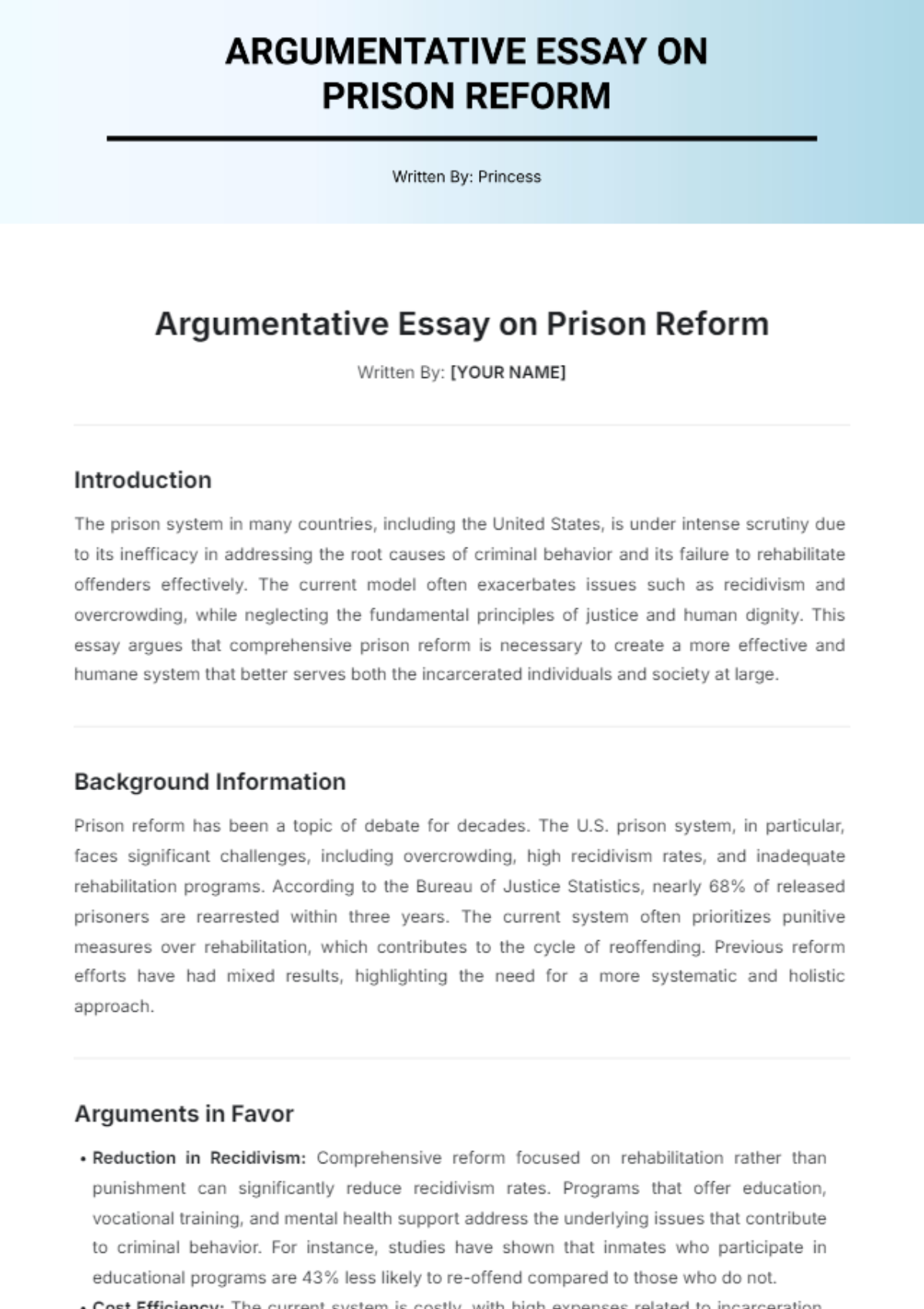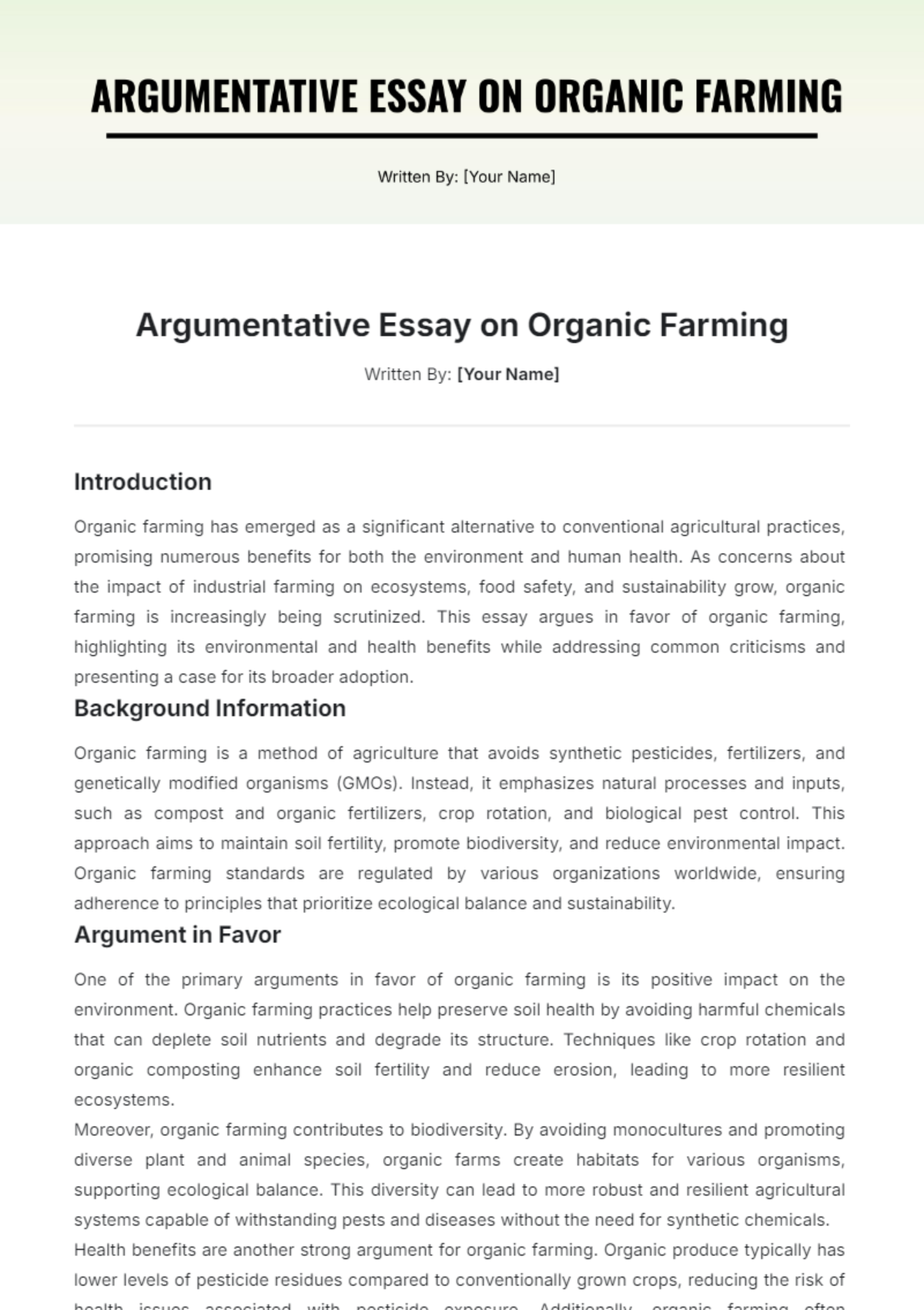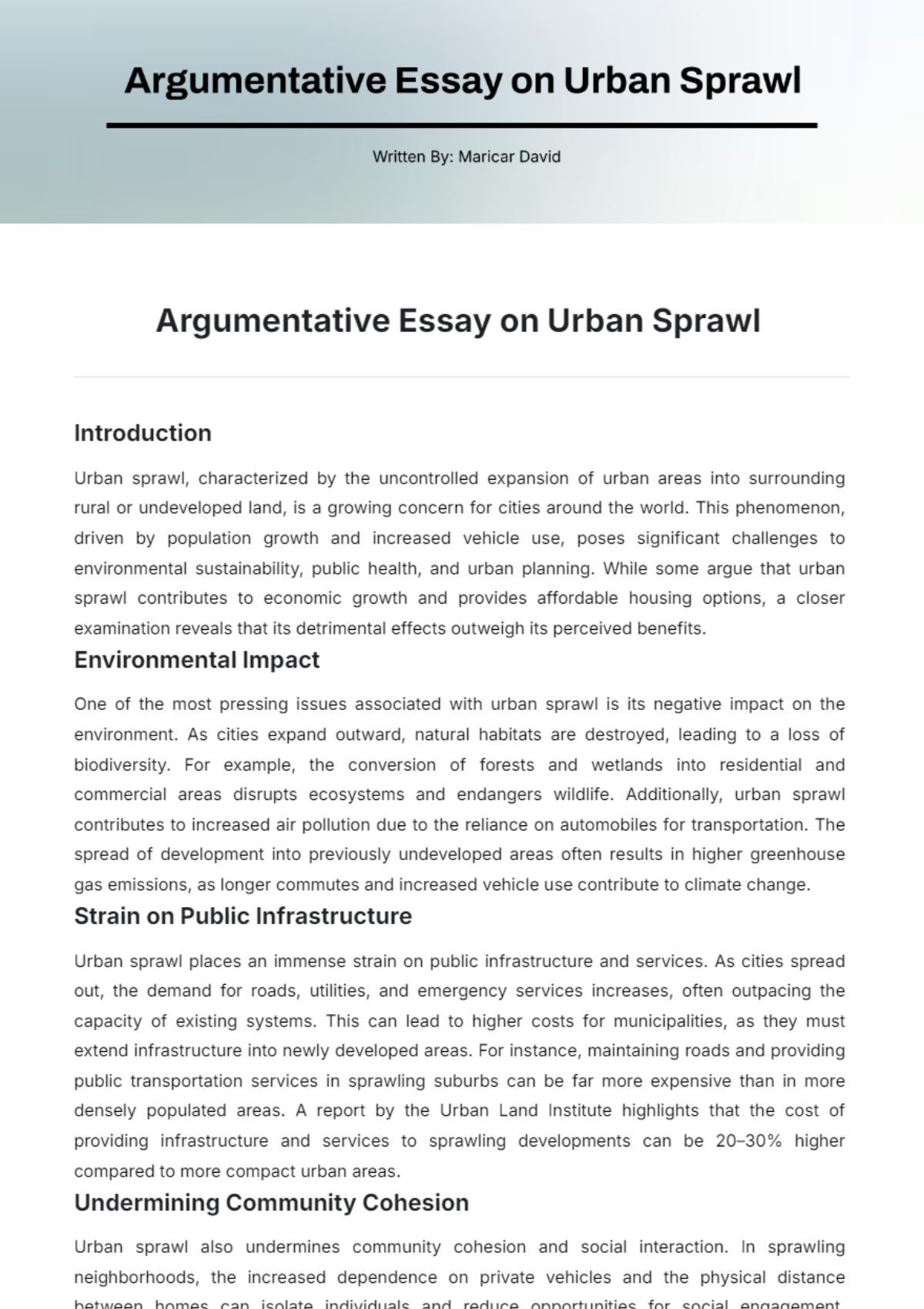Argumentative Essay on Child Labor
Written By: [YOUR NAME]
Introduction
Child labor remains one of the most pressing concerns in global and human rights discourse. Despite numerous international conventions and national laws designed to prevent exploitation, millions of children still find themselves compelled to work under harrowing conditions. This essay argues that child labor is a grave injustice that must be eradicated due to its detrimental effects on children's health, education, and overall development. Furthermore, addressing child labor necessitates comprehensive strategies involving legal reforms, educational opportunities, and economic support for affected families.
Adverse Effects on Health
Child labor often subjects children to hazardous environments where their physical and mental well-being is severely compromised. According to the International Labour Organization (ILO), children working in industries such as mining, agriculture, and factories are frequently exposed to dangerous machinery, toxic substances, and inhumane working hours (International Labour Organization, 2050). Such exposure leads to severe health issues, including chronic fatigue, malnutrition, and even permanent disabilities. Therefore, child labor is not merely a social issue but a public health crisis that demands immediate attention.
Impediment to Education
Another profound impact of child labor is its interference with children's right to education. The United Nations Children's Fund (UNICEF) reports that those involved in child labor are less likely to attend school regularly or receive a quality education if they attend at all (United Nations Children's Fund, 2050). A lack of education severely limits their future opportunities, perpetuating a cycle of poverty and underemployment. By trapping children in a low-skilled labor market, child labor prevents them from achieving their full potential and contributing productively to society as adults.
Social and Emotional Development
Lastly, child labor significantly hampers social and emotional development. Children who work long hours from a young age miss out on critical childhood experiences necessary for their psychological growth and social interaction. According to research by Human Rights Watch, children engaged in labor activities are often subjected to exploitation, abuse, and discrimination, which can lead to long-term psychological trauma (Human Rights Watch, 2050). These experiences shape their worldviews negatively, often leading to difficulties in personal relationships and community involvement later in life.
Conclusion
In conclusion, the eradication of child labor is imperative to safeguard children's health, ensure their access to education, and promote their social and emotional well-being. Achieving this goal requires multifaceted strategies, including robust legal frameworks, accessible educational opportunities, and financial support for families in need. Society must collectively work to eliminate child labor, recognizing that protecting the rights and futures of children is not just an ethical obligation but a foundation for sustainable development and human progress.

